|
Applicants wait in line to enter an Amazon hiring event at a fulfillment center. A leaked memo has revealed the company's strategy to hire vulnerable people more susceptible to its anti-union message. Los solicitantes esperan en fila para ingresar a un evento de contratación de Amazon en un centro logístico. | Elaine Thompson / AP LOS ANGELES—Already known for spending millions on union-busting—with mixed success—the monster retailer and warehouse firm Amazon planned to go far beyond that to gear up against the Teamsters’ campaign to unionize it, especially in a key area, Southern California. Its target to exploit: “Vulnerable people.” In a memo leaked to Recode, Amazon honchos said it would hire students from poor households and people just let out of jail after finishing their sentences. The implication is they would be desperate for jobs and join Amazon. Unable to afford advancement through college, for example, they would be trapped into remaining at Amazon. The memo says that those “vulnerable adult workers would become pro-company speakers.” And for California the Amazon memo envisions a “school to warehouse pipeline”—their words—to funnel young L.A. high schoolers and community college grads into its monster facilities. Amazon also proposed eliminating its employment interviewers’ questions to job applicants about pot use. The racist implication is that minority youth using the drug would be even more vulnerable and prone to super exploitation. The memo also calls upon Amazon to launch a PR campaign designed to ingratiate itself with community groups. And Amazon would shine up its image by supporting organizations that campaign for social change, such as better schools and job opportunities for ex-inmates. It might even raise workers’ pay—to $18 an hour.
Amazon’s strategy doesn’t surprise Shane Gusman, the Teamsters Legislative Director for California, speaking for JC42, in a telephone interview with People’s World. The council’s unions represent workers at, among others, the nation’s busiest port, Los Angeles-Long Beach. Including the PR effort and “buying off community groups,” Gusman said the memo outlines “classic corporate strategy to find any way to get around unionization.” The council also covers the port of San Diego and, importantly, California’s “Inland Empire” of warehouses for storing goods delivered from the ports before transshipment eastwards via truck and train. Walmart, Gusman added, has done the same thing. “It would traipse community groups through the legislature” to testify to the company’s good works while low-balling its workers on pay, benefits, and working conditions, and fighting unionization. “We’ve seen it a thousand times,” said Gusman. And Amazon, like Walmart, “looks at the political climate and latches onto a do-gooder cause” to promote. “It’s totally outrageous.” In the Los Angeles area, dropping the pot questions would let Amazon hire formerly incarcerated people whose past records would otherwise keep them out of jobs. The pay and the pipeline from the high schools and community colleges would appeal to the 80% of L.A. United School District kids who live in families below the poverty line, the memo contends. Both groups called “vulnerable" The memo characterizes both groups as “vulnerable people” open to an Amazon message of immediate jobs. According to the Amazon plan, they then become company defenders against the union. The memo admitted Amazon began with two big disadvantages: Negative perceptions of its impact on communities and local businesses and its low pay. Though the memo did not say so, the negative impact resulted in civic defeats of Amazon warehouse construction projects not just in Southern California but in Colorado, New York City, and elsewhere. In those cases, unions, including the Teamsters on the West Coast and Colorado and the Retail, Wholesale and Department Store Union in New York, mobilized community and political support against the Amazon projects by pointing out how Amazon’s warehouses would disrupt neighborhoods, how its business tactics drive local firms broke, and its skimpy pay. Amazon also worried about the Teamsters’ size, 1.2 million members, and clout, the memo says. Its honchos drew up the document in spring 2021. In 2020, both Teamsters presidential hopefuls declared Amazon, owned by Jeff Bezos, one of the three richest people in the U.S., is an “existential threat” to the union’s core of truckers and warehouse workers. Amazon may face all it can handle as it takes on Joint Council 42. Council locals cover a lot of Amazon’s business area. The council’s locals not only cover Los Angeles-Long Beach, where many of its goods enter from China but workers in Inland Empire warehouses. In those, the goods—brought by rail or by port truckers—are stored before distribution. And for years, JC42 and Teamsters headquarters in Washington have run a multi-step campaign to unionize those thousands of L.A.-Long Beach port truckers and to successfully alert surrounding communities to the negative economic impact of Amazon’s warehouses. The first part of the L.A.-Long Beach drive was to campaign against pollution port trucking firms inflicted on working-class neighborhoods by forcing the truckers to idle, waiting hours on end, for freight. They got state and local environmental officials to crack down. The second part was to alert the truck drivers, and the public, to port truck companies’ exploitation of the drivers by misclassifying them as “independent contractors,” and forcing them to buy their own gas, tires, insurance, and supplies while denying them decent pay and the right to unionize. Truckers would often go home with paychecks counted in pennies. And while JC42 was busy organizing the port truckers and getting them onto informational picket lines—and occasional one-day strikes—the union and its allies went to court under California labor law, which is tougher on bosses than federal law, to win cases against the misclassification. Penalties included not just money but the right to organize. Gusman pointed out that Teamsters can also take on Amazon’s economic arguments that it would use to entice the “vulnerable people” to work in its warehouses. “There’s no reason why the formerly incarcerated can’t get a good union job” since union contracts often bar bosses’ questions about a worker’s past criminal offenses. Some also bar questions about pot use. Young people targeted “And the same thing with the young people” who can be attracted to high-paying union jobs, notably through building trades unions’ apprenticeships and training, he said. The Teamsters, a member of North America’s Building Trades Unions, run such apprenticeships. Amazon’s memo does not discuss its tactics against independent grassroots unions springing up around the U.S. to organize its warehouse workers.
The leaked memo isn’t the first time Amazon tried PR tactics and other dodges to defeat unions, adding to the firm’s “normal” hiring of union-busters and frequent labor law-breaking, documented in unfair labor practices charges filed with the National Labor Relations Board. Left Voice last year uncovered a prior Amazon memo recommending the company film and promote what it called an “inarticulate” Staten Island worker to downgrade the ALU. That boomeranged. The worker Amazon pilloried was Chris Smalls. Smalls, who is both very articulate and very organized, co-founded the Amazon Labor Union. It began after bosses illegally fired him in 2020 for leading a lunchtime walkout at JFK8. The workers protested Amazon’s refusal to protect them against the spreading coronavirus—or even tell them who got sick, so they could protect themselves by anti-virus tests. The end result, after two years: ALU’s win at JFK8, 2,654-2,331. AuthorMark Gruenberg is head of the Washington, D.C., bureau of People's World. He is also the editor of Press Associates Inc. (PAI), a union news service in Washington, D.C. that he has headed since 1999. Previously, he worked as Washington correspondent for the Ottaway News Service, as Port Jervis bureau chief for the Middletown, NY Times Herald Record, and as a researcher and writer for Congressional Quarterly. Mark obtained his BA in public policy from the University of Chicago and worked as the University of Chicago correspondent for the Chicago Daily News. This article was republished from People's World. Archives August 2022
0 Comments
In Mwanza, Tanzania, Nairukoki Leyian-Naisinyai tells me that here, “Corporations come with papers from the government claiming that they have the right to our land.” She points to the large corporations that have entered the lands of the Maasai people to mine rubies and tanzanite. The Maasai can neither assert their rights to the land nor benefit from the mining of these precious resources. The Maasai are a semi-nomadic pastoralist community that proudly practice an Indigenous way of life closely tied to their land and cattle. Their ancestral lands border the East African Rift Valley, the Serengeti National Park and the Ngorongoro Conservation Area. The government aims to expand the Ngorongoro Conservation Area in northern Tanzania and plans to turn it into a game reserve. “Every activity depends on the land,” says Rosa Olokwani-Mundarara, who—along with Leyian-Naisinyai—fights for the rights of the Maasai people to have greater control over their lives. The Maasai community, like other pastoralists, find themselves being marginalized by the capture of their lands for mining, tourism and conservation. According to the Legal Resources Centre and Oxfam, the globally recognized principle of Free, Prior and Informed Consent (FPIC) can be extended to African human rights law and customary law, providing a legal basis to resist displacement. Joyce Ndakaru, who works at the nonprofit HakiMadini (or Right to Minerals), tells me that while FPIC offers important legal protection, the precarious situation of the Maasai land tenure—in particular women’s land tenure—rights poses challenges for women like Olokwani-Mundarara and Leyian-Naisinyai. Conservation or Displacement? Pastoralists, such as the Maasai community, have lost their land to mining, tourism and conservation as a result of unjust practices that are rooted in colonial processes. Desperate to provide water to their declining livestock herds (62,000 have been lost between December 2021 and January 2022 due to the drought in Tanzania), the Maasai have been excluded from areas reserved for tourism, trophy hunting and conservation. For three decades, the Maasai of Loliondo have been resisting displacement by a game reserve that will be managed by Otterlo Business Corporation based in the United Arab Emirates, which has alleged ties to Dubai’s royal family. An attempt in June to demarcate 540 square miles of this land for the game reserve was met with protests. Many Maasai were injured by police. Twenty-four are currently facing charges for the murder of a police officer; their lawyer argues that this is a “politically motivated” trial. More than 2,000 Maasai, mostly women and children, have fled into Kenya, seeking medical care and protection. In a statement to the UN Convention on Biological Diversity, the Maasai of Loliondo denounced the land grab as an existential threat. Soon after Tanzania won its independence in 1961, Prime Minister Julius Nyerere argued that African socialism would be rooted within African traditional society (although traditions that marginalized women would still have to be overcome). Nyerere implemented village collectivization projects to restructure rural production systems. In Define and Rule (2012), Mahmood Mamdani explains that this restructure of the production systems was done to dismantle the legal and administrative arms of the colonial state to ensure that these structures served a different political vision of forging unity by overcoming differences under one legal regime. As the global economic crises in the late 1980s led to a shift toward neoliberal globalization, Nyerere’s approach was considered outmoded. Challenges with collectivization programs had devastating economic outcomes in Tanzania. The World Bank criticized Nyerere’s economic policies as overemphasizing equity rather than productivity. Privatization under structural adjustment in the 1980s expanded mining, agriculture and tourism sectors. Land tenure reforms a decade later became a focus of contestation, with women’s groups aiming for statutory property rights, while pastoralist groups sought to protect customary rights. The former raised the threat of integration into markets on detrimental terms through titling, while the latter offered to protect communal rights (and remained steeped in patriarchal practices). Women pastoralists have remained locked into this harsh situation. Struggles of the Maasai Women “The challenge that women are facing is that we do not have the capital to engage in mining, and do not own livestock,” Olokwani-Mundarara tells me. We are talking about how women’s economic activity, particularly in Olokwani-Mundarara’s Maasai community, is controlled by men. “Men want women to go to the market and to provide food. Failure to do so results in beating,” Olokwani-Mundarara says. Any attempt by a woman to explore a livelihood strategy that cannot be controlled by men is also met with violence. Leyian-Naisinyai says, “Women are expected to do housework and care for the livestock… [owned by] men.” Meanwhile, climate change is only adding to the issues faced by women. A journal article published in Environmental Policy and Law (2021) highlights how the climate crisis is “exacerbating sexual and gender-based violence against women.” When Olokwani-Mundarara decided to speak publicly about the need to resist corporations that are threatening to take their ancestral lands, the elders, who are all men, verbally humiliated her as “seeking [the] attention of men.” Joyce Ndakaru of HakiMadini, who is also Maasai, explains how she had to overcome prejudice to secure her right to education and now organizes Maasai women to reflect on the conditions within which they live and learn about their rights to property and to consent to the development model that serves their interests. Ndakaru tells me about the experience of being a Maasai woman in a deeply patriarchal society: “Maasai women are born, grow and live in a community where men make decisions [about] everything, including those… [related to] women’s needs.” Ndakaru makes it clear that Maasai women are not treated as equal to the men in their community, but are instead infantilized and are seen as sources of free labor. Ndakaru says, “Women are labeled as property, [childlike] and ignorant; hence, their participation in decision-making is very low.” Ndakaru further tells me that this prevents Maasai women from being able to build their own autonomy. She says, “This puts Maasai women in a pool of poverty, marginalization and oppression. Studies have proven that if women are empowered, given equal positions as men and their contributions are appreciated, they are really strong and genuine activists in the community.” To resist land grabbing, women must assert their rights to contest control and ownership over land and natural resources. Ndakaru concludes: “Land, leadership and strong income-generating activities are among key elements to ensure silent voices, including [those] of women, are brought up, respected and advocated [for].” Reflecting on this reality, Olokwani-Mundarara and Leyian-Naisinyai affirmed that they aim to secure a title to resist land grabbing. A four-year study published in the Journal of Peasant Studies (2016) finds that Maasai women who have pursued individual titles still struggle to acquire formal titles due to prevailing patrilineal practices at village-level governance. Instead, according to the study, by being rooted in “collective action,” Maasai women can increase their “access to knowledge, social relations, collective identity, and authority” by asserting their rights to access land, which enables greater political control. As Ndakaru, Olokwani-Mundarara and Leyian-Naisinyai continue their journey in organizing against corporate-led land grabbing by asserting FPIC, and in pursuing land tenure titles, they have an uphill struggle ahead. AuthorHibist Kassa is the research coordinator at WoMin African Alliance. She is the author of “Ethiopia at the Crossroad: The Pitfalls of Narrow Nationalism” for the Agrarian South Network Research Bulletin (2021) and “Researching Women and Gender in Africa: Present Realities, Future Directions” in The Palgrave Handbook of African Women’s Studies (2021). This article was produced by Globetrotter. Archives August 2022 This article aims to reprise Marx's 1844 article on Hegel's philosophy of law which ends with the memorable prediction that the Germans will only become conscious of their revolutionary destiny when they respond to the "the ringing call of the Gallic cock." Well, the last time the Gallic cock was heard from was in 1968 and it was rather subdued compared to its noisy past (1789, 1830, 1848, 1871). Fortunately for those who read this pre-Communist Manifesto work of the young Marx (he was 25 when he wrote it) it has many useful ideas packed into its 13 pages that are still of interest today even though no one is expecting the Gallic cock to make any ringing calls in the foreseeable future. Its greatest call remains that of 1789 which inspired the Russian, Chinese, Korean and Vietnamese Revolutions as well as the Cuban and which is echoed today in the Universal Declaration of Human Rights. Now for Marx's ideas and how they relate to today's struggles. There are revolutionary movements at work in the contemporary world and some of the ideas expressed by Marx in relation to the French and German movements of the early nineteenth century can be applied to them. There are three areas where revolutionary ferment is currently occurring-- the Middle East and Africa where we see revolutions and counter revolutions breaking out in several different countries, Latin America where several countries are now led by pro socialist and/or progressive governments inspired by the Cuban revolution and threatened by US imperialism, and in south east Asia where both India and Nepal have active revolutionary movements based on exploited peasants and indigenous peoples. Unfortunately in some of these areas, especially in the Middle East and Africa, there are armed groups and political organizations whose ideological roots are allegedly based in religion and a fanatical commitment to creeds which do not reflect objective reality (this is also true in Europe and especially the U.S. where dogmatically fundamentalist ideas fuel many in the Republican Party and the core of the anti-choice movement which rejects Roe vs. Wade and treats women as objects to be manipulated for political gain.) This essay by Marx ("Contribution to the Critique of Hegel's Philosophy of Law: Introduction") maintains that the fight to improve the world involves a fight to criticize religion since we will not be able to focus on the real world and its problems if we spend our time engaged with a false world such as the one conjured up by religion. This essay by Marx is admittedly dated but still of some interest today. This work is justly famous as the source of the quote that "religion is the opium of the people." While opium may be able to supply some relief from an intolerable reality we can't expect people doped up on opium, spiritual or otherwise, to be involved in schemes for rationally based world improvement. We will get to the full quote in a minute. First, I want to note that in 1844 Marx thinks the basis of all criticism of the basic world order is the criticism of religion and that in his day this criticism has basically been completed-- at least in western Europe (Germany in particular). "Man makes religion, religion does not make man." Marx is right of course for the Western world in general and large parts of Asia (China, Vietnam) religion is no longer a major factor in people's lives (except in a pro forma sense or within fringe groups or in backward areas). Unfortunately this battle has not yet been won, or even joined, in large areas of the Third World. Religion thrives on oppression and only by simultaneously fighting oppression, and furthering progressive education, will religion wither and the people flourish. The following is Marx's full quote on this issue: Religion "is the fantastic realization of the human essence because the human essence has no true reality. The struggle against religion is therefore indirectly a fight against the world of which religion is the spiritual aroma." He continues: "Religious distress is at the same time the expression of real distress and also the protest against real distress. Religion is the sigh of the oppressed creature, the heart of a heartless world, just as it is the spirit of spiritless conditions. It is the opium of the people." Finally, he says: "To abolish religion as the illusory happiness of the people is to demand their real happiness. The demand to give up illusions about the existing state of affairs is the demand to give up a state of affairs which needs illusions. The criticism of religion is therefore in embryo the criticism of the vale of tears, the halo of which is religion." These three quotes form the basis of the materialist outlook on religion. But what is the difference between illusory happiness and real happiness? If a person is experiencing "happiness" what more is there to say? If we take an example from current history and say that the members of the Moslem Brotherhood in Egypt, being at heart members of a religious organization, are living in an illusory world and the Egyptian people demanding their removal from power was an example of the demand to abandon illusions about the nature of the problems facing Egypt and the existing state of affairs then, it would seem, the only justification for this action would be to revolutionize the state of affairs (i.e., the social, economic, and political status quo) to such an extent that religious illusions would no longer have any traction in that society. But who is to decide who is delusional? In the first place, rather than speaking of illusory versus real happiness, it would be better to speak of a feeling of happiness based on a false belief about the nature of reality and one based of a true belief about the nature of reality. You may feel (temporarily) happy taking your laetrile for that lump but you would be better off having it removed. As for who decides, Marx was very specific (in 1844) as to whom this responsibility devolves. It is the role of philosophy in service to history. We will have to allow Marx to use this Hegelian way of expressing himself: while critical of Hegel he had not yet completely liberated himself from Hegelian ways of expressing his ideas. He says: "The task of history, therefore, once the world beyond the truth has disappeared, is to establish the truth of this world. The immediate task of philosophy, which is at the service of history, once the holy form of human self-estrangement has been unmasked, is to unmask self-estrangement in its unholy forms. Thus the criticism of heaven turns into the criticism of the earth, the criticism of religion into the criticism of law and the criticism of theology into the criticism of politics." Marx may have thought this battle was over in the Germany of his day, but it is still raging here in the USA: one only has to read the the statements made by right-wing US politicians on the issues of a woman's right to choice, or on the food stamp program, or on sex education or on social welfare and "entitlement" programs to see how retrograde religious references are put forth to justify reactionary and even quasi-fascist social policies. And it is not just in the United States. Every day you can read in the papers how all over the planet religion is used to crush the human spirit, attack enlightenment, retard scientific understanding and further the goals of fascism, militarism, and imperialism. Although they are an important influence, all the religious progressives and pacifists in the world will not stem this backward tide of religious fanaticism without robust secular movements and political parties that are able to rally millions of oppressed people to fight against it. Behind the religious facade stands a more this worldly enemy. Marx writes that once the other worldly illusion has been mastered we must focus on the reality of this world and the real roots of oppression and human self-estrangement. "The relation of industry, of the world of wealth generally, to the political world is one of the major problems of modern times." A 170 years isn't so long after all as our world today faces exactly this problem-- from the Koch brothers to the MAGA movement, to big oil and pollution, to the European economic crisis and the war against working people, to the world wide faltering of capitalism based on domination by banks and financial institutions, and third world exploitation-- it is all based on struggle over which countries and which classes are going to control industry and the world of wealth. As this struggle intensifies we can expect the world to become a more and more violent place. The past century may have been only a prelude of things to come. We read in the papers that Japan plans to rebuild its military, the US is building up its forces in the Pacific (aimed at China) and moving into Africa, NATO is carrying on wars of aggression far from its home bases and preparing for interventions anywhere that may threaten Western dominance. Afghanistan, Pakistan, Yemen, Somalia, Honduras, Haiti, Libya, Egypt, Syria (to name just a few of the most recent examples) no country is safe from Western intrigue, drones, outside interventions, or externally manipulated civil wars whenever the economic interests of the US and its allies and puppets are seen to be at risk. Today we see the US and Russia engaged in a proxy war in Ukraine stemming from the US backed overthrow of the elected Ukrainian government in 2014 and the advance of NATO to the Russian borders. Marx realized that journalism alone, philosophy and criticism alone, would never be able to change this situation or be able to overthrow the world system of human exploitation. "The weapon of criticism cannot, of course," he wrote, "replace criticism by weapons, material force must be overthrown by material force; but theory also becomes a material force as soon as it has gripped the masses." This is why Wiki-Leaks and people like Julian Assange, Chelsea Manning and Edward Snowden along with other whistleblowers and investigative reporters must be silenced, for governments and their toadies know that once the people are informed, once they realize that the theories of their own governments are that information and democracy must be restricted (fascist policies introduced) in order for them to carry out their repressive domestic and international policies, they will fight back (or so they think) to ensure their rights and livelihoods. A revolution in thought must precede a revolution in deed. Marx thinks there must be a material basis for any revolution. "Theory can be realized in a people only insofar as it is the realization of the needs of that people." People around the world are becoming more and more aware of their real needs which are the exact opposite of those they are told about by capitalist governments and their hand kissing mainstream media. They need jobs, peace, education, housing and clean air and political parties and movements that truly represent working people and their allies, not bombs, drones, military interventions, no fly zones, fossil fuels, austerity and bank bailouts, and capitalist and fake socialist and labor parties that betray them. A political revolution, such as we saw in Egypt, or the "Arab Spring" in general, was only a partial revolution. Marx's thinking here is conditioned by the experiences of 1789 and 1830 in France. What are these partial revolutions based upon Marx asks [a complete revolution would change the social relations and economic base of a country-- 1789 rather than 1830-- or even 1776.] His answer is that a "part of civil society emancipates itself and attains general domination; on the fact that a definite class , proceeding from its particular situation, undertakes the general emancipation of society." In Egypt in 2011, for example, it was the middle class in alliance with the workers and peasants and some elements of the big national capitalists against the military dictatorship headed by Mubarak and representing compradore capitalists in alliance with US imperialism and its puppets (e.g., the EU). "No class of civil society can play this role," Marx says, "without arousing a moment of enthusiasm in itself and in the masses, a moment in which it fraternizes and merges with society in general, becomes confused with it and is perceived and acknowledged as its general representative; a moment in which its demands and rights are truly the rights and demands of society itself; a moment in which it is truly the social head and social heart." It was Mohammed Morsi and the political party affiliated with the Muslim Brotherhood that emerged in 2012 as the general representative of the forces that brought down Mubarak-- it claimed to represent the incarnation of the most general (and contentless as it turned out) demand of the revolution: "Democracy" as incarnated in free and fair elections. Unfortunately for the Brotherhood its anti-democratic and dogmatic nature soon came to the fore as it tried to impose its sectarian doctrines on the rest of the revolutionary movement, of which it was only one component, while relying on the military to maintain it in power. This is why a merely political revolution is only partial. In Egypt one "tyrant" was removed from power, and a would-be tyrant was also expelled from office-- both by the Egyptian military reacting to millions of people in the streets demanding rights and freedoms which are the norm in stable bourgeois democracies. The real rulers in Egypt remain the military-- the same military that installed Nasser-- and the economic and social relations remain the same. To what extent they will allow bourgeois democracy to take hold in Egypt remains to be seen. One thing we can count on is that all the forces of US imperialism will be marshaled against the Egyptian masses and their democratic aspirations, the current US supported military dictatorship is proof of this. Marx, in this essay, thought a complete revolution would have to be led by a class whose emancipation would free both itself and all other classes-- by abolishing class differences. Of course, he is talking about 1844 Germany and the working class was very small and just beginning to develop so any coming revolutions would be bourgeois democratic in nature and not socialist. Yet Marx thought that only a full fledged socialist revolution, one demanding the abolition of private property, would actually be able to free human beings from exploitation and oppression. That day has not yet dawned but, if Marx was right about the role of criticism in the development of human self consciousness and the struggle for freedom, we can conclude that the role of religion and the religious consciousness will play an insignificant part-- indeed will be a negative rather than a positive ingredient in the self liberation of humanity from its self imposed fetishes and idols. What then does Marx think will replace religion as the moving force in advancing historical progress. He said it would be philosophy. In his day what we call science was more or less considered a part of philosophy-- natural philosophy. So if we think of Marx as thinking that the road to liberation will be guided by a materialist philosophy based on scientific understanding we will not be misguided. The section of humanity that will traverse this road is that of the working people, including agricultural workers, and especially industrial workers who will finally be able to put the economic resources of the planet, the common property of all not the few, to work for the common good. This day will come, following Marx, when scientific philosophy finds its material weapons in the working people and they find their spiritual weapons in scientific philosophy. But whether it will be the Gallic cock or some other whose ringing call proclaims this day remains to be seen. AuthorThomas Riggins is a retired philosophy teacher (NYU, The New School of Social Research, among others) who received a PhD from the CUNY Graduate Center (1983). He has been active in the civil rights and peace movements since the 1960s when he was chairman of the Young People's Socialist League at Florida State University and also worked for CORE in voter registration in north Florida (Leon County). He has written for many online publications such as People's World and Political Affairs where he was an associate editor. He also served on the board of the Bertrand Russell Society and was president of the Corliss Lamont chapter in New York City of the American Humanist Association. He is the author of Reading the Classical Texts of Marxism. Archives August 2022 8/6/2022 Russian Army Commander Links Hugo Chávez’s Death to US Biowarfare. By: Orinoco TribuneRead NowFormer president of Venezuela, Hugo Chávez, on June 26, 2010. Photo: Fernando Llano/AP. The commander of the Radiological, Chemical, and Biological Defense Troops of the Russian Armed Forces, Igor Kirillov, declared that Washington’s special services had been developing possible plans to eliminate the former Venezuelan leader since 2002. The biological activities of the US are linked to the death of the former president of Venezuela, Hugo Chávez, said the head of the Radiological, Chemical, and Biological Defense Troops of the Russian Armed Forces, Igor Kirillov, at a press conference earlier today. In particular, Kirillov referred to the words of the current president, Nicolás Maduro, who on July 18 spoke publicly about ” the involvement of the US in the assassination” of Chávez. The senior Russian commander pointed out that the authorities of the Caribbean country have data indicating that since 2002, Washington’s special services have been developing possible plans to eliminate Chávez, the architect of “an active anti-imperialist policy.” In this regard, Kirillov said that multiple assassination attempts involving officials from the US embassy in Caracas were identified and foiled. “In violation of international law, the US carried out activities to create drugs that, when administered to the body in the short term, cause chronic diseases and lead to the development of different forms of cancer,” Kirillov said. “According to data from the Venezuelan side, a similar drug was used to poison Chávez, by Claudia Diaz, who was a nurse and part of the presidential entourage.” The senior military officer indicated that Díaz left Venezuela, and was subsequently transferred to the US, to prevent her collaboration with Washington’s special services from being revealed. The indications of the forensic examination and the testimonies of Cuban doctors who treated Chávez —who drew attention to the “atypical” course of the illness and his resistance to the application of drugs—corroborate the cause–effect relationship between the death of the former Venezuelan leader and developments in the field of biological weapons by Washington, said the representative of the Russian Defense Ministry, who also mentioned the connection of US illegal biowarfare research around the world to COVID-19, and how information obtained on US financed biological labs in Ukraine has helped Moscow to have a better understanding about the reach of US terrorist plots. The Russian commander provided some additional details about this Venezuelan nurse suspected to have played a part in this plot: • Hugo Chávez died on March 5, 2013 from cancer that he had been fighting for more than a year. • In May 2016, the then vice president of Venezuela, Aristóbulo Istúriz, suggested that the leader of the Bolivarian revolution was assassinated for wanting to end “the dictatorship of the dollar,” and suggested that the cancer that ended his life was induced. • Claudia Díaz was extradited from Spain to the US in May of this year due to allegations of money laundering and criminal association. In addition, she is a fugitive from justice in Venezuela, where she is wanted for allegedly committing crimes of money laundering, illicit association, and embezzlement, but Spain avoided sending her to Venezuela, as an extradition request was filed by the US. • In 2001, she joined the body of the Venezuelan presidential security. In 2003, she joined President Chávez’s medical team as a nurse, where she remained until 2011. (Actualidad RT) with Orinoco Tribune content Translation: Orinoco Tribune AuthorOrinoco Tribune. This article was republished from Orinoco Tribune. Archives August 2022 8/6/2022 Cuba’s Díaz-Canel Calls for Unity Among Communist Parties Around the World. By: Juan M. GarciaRead NowMiguel Díaz-Canel President of Cuba and First Secretary of the Communist Party of Cuba (PCC). Photo: Prensa Latina. Havana, Jul 28 (Prensa Latina)—The first secretary of the Communist Party of Cuba (PCC), Miguel Díaz-Canel, commented that unity among the world’s communist groups is necessary and urgent, Granma newspaper reported. According to the newspaper, in a message to the International Forum of Marxist Parties, held virtually and organized by the Communist Party of China, the Cuban head of State expressed gratitude for the opportunity to exchange theoretical advances and practical experiences of these organizations. In the text, read in front of representatives of 109 parties from all over the world by Rosario Penton, rector of the Ñico Lopez PCC Superior School, Díaz-Canel stressed that since its emergence, Marxism have provided the scientific foundation to the class struggles of the world proletariat and of the international working class. He pointed out that the objectivity of its postulates is revealed in a particular way in times of crisis. Diaz-Canel referred to the mistakes made in the name of the Marxist tradition, the setbacks and defeats. He also highlighted the ways in which Marxism in Cuba merged with the best of the revolutionary national tradition, which had among its highest exponents José Martí and Fidel Castro Ruz. He affirmed that for Cubans, being a Marxist means constantly learning from practice to integrate the development of the social sciences. Diaz-Canel highlighted the ideas, concepts and guidelines approved in the 8th PCC Congress, and pointed out the three main tasks that have become strategies for partisan work: the economic battle; unity and struggle for peace; and ideological firmness. He emphasized that Cuba is working on the formation of a critical and transforming subject of prosperous, sustainable and democratic socialism, as part of the process of updating its development model. “We are firmly convinced that socialism is the only path to development with social justice to creatively overcome capitalism, its unsustainable irrationality and the values that guide it,” he added. Díaz-Canel recalled the positive and negative lessons of other countries that have previously embarked on this path and what it means to be close to and constantly being harassaed by an adversary as powerful as the United States government. He denounced the growing aggressiveness of the US against Cuba, as well as the use of perverse instruments of unconventional warfare, the media indoctrination laboratories, the disinformation campaign, lies, double standards and hypocrisy, through social media. “The reality of today’s world confirms that it is increasingly necessary and urgent for Marxist parties to unite to face the great challenges that lie ahead. Only unity in diversity will ensure victory,” Díaz-Canel concluded. (Prensa Latina – English) by Juan M. García AuthorJuan M. Garcia This article was republished from Orinoco Tribune. Archives August 2022 8/6/2022 US forces involved in at least 23 proxy wars across the world, new documents suggest. By: Morning StarRead NowThe Pentagon Photo: David B. Gleason / Creative Commons UNITED States Special Operational forces have been involved in at least 23 secretive proxy wars across the world on a scale far greater than previously known, new documents indicate. A report published by US website The Intercept detailed the secretive 127e Pentagon programme with at least 14 operations across the Middle East and Asia Pacific region as recently as 2020. In total, US commandos conducted 23 clandestine proxy wars across the world at a total cost of $310 million between 2017 and 2020, according to documents obtained via the Freedom of Information Act. Retired army general Joseph Votel, who headed both Special Operations Command and Central Command, confirmed the existence of previously unrevealed 127e “counterterrorism” efforts in Egypt, Lebanon, Syria and Yemen. He told The Intercept that the 127e in Lebanon was codenamed Lion Hunter. Mr Votel also acknowledged previously unknown 127e programmes in Syria; Yemen, known as Yukon Hunter; and Egypt, codenamed Enigma Hunter. In Lebanon, the US entered a partnership with the G2 Strike Force, or G2SF, an elite special unit of the Lebanese military, the documents show. A former senior defence official, who requested anonymity to discuss a classified programme, confirmed that an earlier version of the 127e programme had also been in place in Iraq. Another secretive US mission was carried out in Tunisia under the code name Obsidian Tower which allied with local proxy forces in 2017. The clandestine programme comes from the US Code Section 127e and was previously known to have been in operation across Africa, using “surrogate teams” in direct action and reconnaissance missions. Under its auspices the Defence Secretary can spend up to $100 million during a fiscal year to support “foreign forces, irregular forces, groups, or individuals” combatting terrorism. The obscure funding authority allows US commandos to conduct so-called counterterrorism operations “by, with and through” foreign and irregular partners across the world. According to The Intercept, basic information about these missions — where they are conducted, their frequency and targets, and the foreign forces the US relies on to carry them out — are unknown even to most members of relevant congressional committees and key State Department personnel. The Pentagon and Special Operations Command refused to comment on the 127e authority. “We do not provide information about 127e programmes because they are classified,” Socom spokesman Ken McGraw said. Critics of the 127e programme have warned that the operations could be unlawful and lack the congressional authorisation for overseas military operations required by the US Constitution. AuthorMorning Star Online This article was republished from Morning Star. Archives August 2022
Election posters of Gustavo Petro, the new president of Colombia. Photo: Mauricio Dueñas Castañeda/EFE.
The alliance known as the Historic Pact (PH, or Pacto Historico) —a coalition of political forces, each with its own political and organic autonomy and independence— was formed for the purpose of winning the elections in order to defend the six following principles of their program:
At first, the PH was made up of seven parties: Humane Colombia, the Patriotic Union-Communist Party, Alternative Democratic Pole, the Alternative Indigenous and Social Movement (MAIS), the Workers Party of Colombia, Democratic Unity, and We Are All Colombia. The alliance’s first participation in legislative elections occurred on March 13, 2022. The establishment of the National Congress is a key step that this alliance, which just found itself at the helm of the Colombian government, will have to take in order to deliver on its promises and guide the country towards addressing the problems which social movements in Colombia have been trying to solve for many years. For the first time, since the formation of the new congress on the July 19, 16 victims of the armed conflict in Colombia are occupying six seats in the Chamber of Representatives, which have eight-year terms. These seats do not include the posts designated in both chambers for members of the Commons (Comunes) party, which is stipulated by the peace agreement and will expire in 2026. The alliances for a national agreement
Once the results of the legislative elections were released, a number of dialogue sessions between the Historic Pact and other movements and political parties took place in order obtain more support for the alliance and thus be able to form a majority in Congress. The party led by the recently elected president, Gustavo Petro, obtained 20 seats in the Senate and 28 in the Chamber of Representatives, failing to obtain a majority. As a result of the negotiations, it now has the support of 64 of the 108 senators (59%) and 106 of the 188 representatives in the Chamber (56%).
The U Party recently joined the PH alliance, bringing with it 27 congresspeople (10 senators and 17 representatives), despite the fact that it is widely known that this party was founded to aid with the reelection of former President Álvaro Uribe in 2005. Furthermore, it is common knowledge that the U Party supported the peace agreement promoted by former President Santos, and that in 2018 they lent their support to Iván Duque.
For the first time in Colombia, the victims of the country’s internal armed conflict will have a voice and will be able to vote in Congress, thanks to the 16 newly appointed representatives, who come from the regions historically most affected by the violence (photo: AP Photo).
The alliance also managed to win over the support of both the Conservative Party, adding another 15 senators and 27 representatives in the Chamber, as well as the Radical Change party, bringing with it 11 and 18 senators and representatives, respectively. Despite the fact that the recently elected vice president, Francia Márquez, once called former President César Gaviria a “neoliberal,” the Colombian Liberal Party, which Gaviria represented, has also joined the PH bloc, adding another 14 senators and 33 representatives. The centrist Green Alliance, with 8 senators and 12 members of the Chamber, also followed suit.
Furthermore, the Independent Social Alliance (ASI), Commons, and other Indigenous and Afro-centered parties brought with them another 11 seats in the Senate and 7 in the Chamber of Representatives, while the Citizen’s Force and People in Movement party added another 2 senators, and 9 of the 16 representatives stipulated by the peace agreements. In the meantime, the party of the outgoing government, Democratic Center (CD), founded by Uribe, obtained 13 and 16 senators and representatives, respectively. They have declared their opposition to “government policies that raise taxes” and have claimed they will defend the agricultural sector from expropriation and confiscatory taxation. The former presidential candidate and business magnate Rodolfo Hernández, defeated by Petro, has stated via social media that “he is committed to the opposition.” In a meeting with the recently elected president of Congress, Roy Barreras, Hernández spoke of the creation of a new commission dedicated to promoting anti-corruption measures which, according to Barreras, will be presided over by Hernández, who is being investigated for corruption.
Starting off with an agenda of reforms
One of the first initiatives announced by the new congress is that of reforming the legislative branch itself. The PH bloc will try to lower the salary of congresspeople, reduce vacation time, widen the list of causes for which a congressperson may be dismissed from their post, and limit the term of congresspeople to three legislative periods. In the past, 13 attempts which sought to lower the wages of congresspeople have failed to be passed, not to mention the 4 unsuccessful attempts to modify their vacation time and the other 5 which were drafted to penalize absenteeism.
The congresspeople promoting these reforms are still discussing how much salaries should be lowered and when the project should be presented. The salary of a congressperson is currently $7,800 a month, more than 30 times the minimum salary in Colombia. Before taking office, Senator Humberto de la Calle, a former commissioner of the Peace Accords, declared that the Colombian congress would be “progressive” due to the reforms promoted by the Petro administration in areas such as taxation, agriculture, politics, and many others. De la Calle and Daniel Carvalho, chosen by the Green Oxygen party, have announced that they will maintain an independent position with respect to the elected government of Gustavo Petro, specifying that they will support him on some legislative issues after the expulsion of his party for disagreements with the party founder, Ingrid Betancourt. This past Monday, July 25, the Commons party, formerly known as FARC, pushed for several legislative projects to “promote peace agreements and to protect fundamental rights.” These proposals range from political and electoral reform to enable the construction of stable and long-lasting peace, to the differential legal treatment of small farmers who are, or were at some time, growing illegal crops.
Youth who have been reinserted into the labor force after forming part of the FARC, the ELN, and the AUC are being trained to be fruit growing technicians in the Valle del Cauca through a government-supported plan in conjunction with private companies and organizations from abroad (photo: Pixabay).
Similarly, these proposals attempt to work towards reforms, together with farm workers, in the fields of politics, electoral law, electoral oversight, differential penal treatment, guarantees of the right to protest, agrarian jurisdiction, and national parks. During a press conference, they evoked the 333 signatories of the Peace Accords who were later murdered as evidence of the lack of humanitarian guarantees in the country, and doubled down on their intention of solving the humanitarian crisis affecting farm workers, former guerrilla fighters, indigenous communities, afro-descendant peoples, and urban areas during the Iván Duque government, which ignored these social problems. Another item on the agenda, passed on Tuesday, July 26, is the ratification by Congress of the Escazú Agreement, signed by the Colombian state. It was very difficult to push this agreement forward, due to the doubts and objections of various factions, such as the Democratic Center and Conservative Party congresspersons, as well as other sectors, with regards to its possible effects on development projects in Colombia. The agreement is designed to fight against inequality and discrimination while guaranteeing the rights of everyone to a healthy environment and to sustainable development, with special attention paid to ethnic groups and civil society. Three key aspects are emphasized in the struggle for these goals: access to public information, the participation of citizens in decisions which pertain to them, and environmental justice.
In response, CD Senator María Fernanda Cabal, herself the object of many scandals, retorted that “just like they did in Chile, in Colombia, Petro will pass the Escazú Agreement, which will put an end to judicial sovereignty and juridic order. The 2030 agenda is starting to be implemented, it destroys everything, under the disguise of just causes.”
The key to stage managing this government
When there were still doubts about whether or not the economist [Petro] could govern as the first leftist president, when his links to guerrilla organizations, the distrust in the barracks, the market, the press, and the balance in Congress, all seemed like bad omens, certain recent developments in Colombian politics are indicative of something else.
Petro’s popularity is on the rise, his approval rating rose to 64% after the July 19 elections, the highest of a Colombian head of state since 2005; more than Uribe, with his landmark wins in 2002 and 2006, and almost the same as Juan Manuel Santos in 2010. Petro has kept his two allies, the congressmen Roy Barreras and David Rocero, as presidents of the Senate and Chamber of Representatives, respectively. In spite of this, the tension has disappeared: during the taking of office of the new congress this past July 20, the senators and representatives brought signs with them displaying their demands during the next four years, and which were also directed at the outgoing government. The Historic Pact thus recalled all of the social leaders and murdered former combatants, while the Uribismo factions, the only opposition party, showed images of dead members of the public armed forces and posters with the message “two visions, one country,” alongside with images of the destruction which resulted from last year’s protests.
Outgoing President Iván Duque was booed by the opposition, which also showed posters with the faces of murdered social leaders, while Duque gave the welcoming speech to a Congress whose majority were opposed to his government (Foto: Juan Pablo Pino/AFP). All in all, there are indicators that point to the possibility of Petro managing to maintain a stable government during the next four years. He has made symbolic and meticulously announced appointments to ministries and embassies, some of which are:
With these measures, Petro is trying to reactivate the peace process, which was partially put on the back burner by Iván Duque, and to moderate his image as a leftist. In this regard, some of his appointments have cast doubt on the authenticity of the promises made by the Historic Pact. Relations with the US are another key factor that will determine the future of this government. On the 23 of July, Petro, Murillo and Leyva met, in Colombia, with officials from the Biden Administration to review the free trade agreement and other issues such as peace, migration and climate change. The way in which the political panorama has unfolded before Petro foreshadows a period of stability for his government, yet the future of his project will also be determined by the economic conditions left by the current government. The opening of the so called “Petro coalition” to a wide spectrum of political, social, academic, and intelectual “forces” has made the country more confident in him and has smoothed over the negative perceptions which surrounded his political image. The rolling out of a Great National Agreement has helped these distinct perspectives, which could easily have fallen into the role of the opposition, to integrate themselves into this diverse coalition without fusing them into a homogeneous mass, while still maintaining common goals. The words of Jorge Eliécer Gaitán, spoken in 1946, are more relevant than ever: “In Colombia there are two sides of the country: a political side and a national one. The political one thinks about its employees, its mechanics and its power, the national side things about work, health, and culture, things that are neglected by the political side. These two sides have different paths. What a drama in the history of a people!” The Historic Pact is calling for a peace obtained through the collective will of the people and the renovation of the system at a moment when the current model and the political class are exhausted. The PH has put all of its chips on reaching a consensus in order to address these issues, but it will be anything but easy in Colombia. (Misión Verdad) Translation: Orinoco Tribune OT/KW/SL AuthorMisión Verdad is a Venezuelan investigative journalism website with a socialist perspective in defense of the Bolivarian Revolution
This article was republished from Orinoco Tribune.
ArchivesAugust 2022 8/6/2022 The struggling Communist Party of Swaziland needs international solidarity. By: W.T. Whitney Jr.Read NowCPS Life expectancy in Swaziland, in southern Africa, is the world’s seventh lowest; its HIV/AIDS prevalence is the world’s highest, at 26%. Unemployment is 41%, and wages for 80% of workers are less than $2 per day. Swaziland is an autocracy headed by a king, and it’s social and economic indicators show that the people are suffering under royal rule. A Communist Party has existed in Swaziland since 2011, even though political parties are illegal there. Many activists, including Communists, are forced to live abroad, mainly in South Africa. What follows in this article is information about the Communist Party of Swaziland (CPS), its activities and goals, aspects of Swazi history, and current realities. The CPS urgently needs international solidarity. Its recent story begins in early May 2021 with the mysterious death, presumably at police hands, of law student Thabani Nkomonye. The police violently disrupted his memorial services. The National Union of Students mobilized masses of young people, and the police retaliated repeatedly with tear gas and bullets. Amid the uprising, the CPS called for legalization of political parties, overthrow of the “tinkhundla system” of control by chiefs in rural areas, and removal of the king. During May and into June, the National Union of Students organized additional marches; 3,000 students advancing on a police station were met with tear gas and arrests. Anti-government protesters prevented 30,000 textile workers from entering their factories. The government responded by banning demonstrations. The CPS called for a National Democracy Conference at which “a common minimum program could be achieved for transform[ing] the state from a monarchy into a republic.” Due to government repression an opposition division, no conference materialized. Writing a year later, analyst Joseph Mullen explains: “In this moment…the anti-monarchy forces were themselves deeply divided. While the CPS represented the radical force pushing for the abolition of the monarchy and the prosecution of the King, some opposition forces expressed willingness to settle for a constitutional monarchy with an elected government…. They afforded too much power to bourgeois forces, who sought simply to reform the monarchy.” Anti-government protests, continuing for weeks, climaxed on June 29, 2021. Swazi police and soldiers initiated violent repression. Within days, 70 people were dead and hundreds wounded. Nationwide agitation returned almost a year later as opposition groups prepared for the one-year anniversary of the massacre. The CPS, playing a leading role, was targeted early. The police captured and tortured member Bongi Nkumbula on March 23. On July 13, they were again surrounding and approaching his house, but he escaped. CPS cadres organized weekly “sunset rallies.” They urged communities to form “security councils” to protect against police incursions and organized “welfare councils” to deal with unmet housing, food, education, and healthcare needs. In cooperation with the People’s United Democratic Movement (PUDEMO) and the Multi-Stakeholder Forum, “a platform of political parties, trade unions, civil society and other groups,” the CPS carried out vigils, set barricades, and called for schools and businesses to be closed on June 29, the anniversary day. Police attacks continued. Security “forces shot live bullets at CPS members and activists” on June 26. Descending on sections of Mastapha municipality on June 28, they raided two houses CPS members were using as organizing centers. The anniversary passed without killings, as was the case with an earlier period of turmoil connected to the party’s experience. In 2011, days of anti-government agitation by students, unions, and democracy organizations anticipated the fateful day of April 12. That was the day in 1973 when King Sobhuza II, father of the present king, banned political parties and repealed the constitution the British colonial power had granted in 1968. He ruled thereafter by decree. The CPS chose April 11, 2011, as the day for announcing its presence in Swaziland. King Sobhuza II officially ruled from 1899 until he died in 1982, though he only assumed full powers in 1921, as he was only four months old at the time he assumed the throne. His reign is the longest of any monarch in human history. On becoming king in 1986, his son, Mswati III, reinstated parliament. His government devised a constitution that went into effect in 2006 and continues. It gives the king power to appoint the prime minister, cabinet, all judges, two thirds of the upper-house members, and 12% of lower-house members. The remaining legislators require approval from tribal chiefs, who are themselves appointed by the king. A harsh Suppression of Terrorism Act took effect in 2008. A writer in 2011 summarizes: The Swazi monarchy “crushed the ambitions of all Swazis, [except for] a small parasitic elite based within the monarchy. The ambitions of the middle classes were curtailed by banning political parties and those of the working classes by suppressing the labor movement. The monarchy also enhanced its power grip…by controlling mineral royalties, business, and land administration.” According to MRonline.org, “the royal family receives a 25% cut of all the mining deals…and as of 2016 has a budget of $69.8 million. The King, Mswati, has a net worth of $200 million and he controls a trust worth $10 billion.” The Swaziland monarchy has enjoyed absolute power for centuries, even during the period of European colonial domination during the late 19th century. A British commissioner governed Swaziland from 1902 until Swazi independence in 1968. Even so, the monarchy exercised complete control over 33% of Swaziland known as the “native reserve.” On April 19, 2018, the 50th anniversary of Swazi independence, King Mswati III renamed Swaziland. Now, officially, it’s “the Kingdom of Eswatini.” The People’s United Democratic Movement (PUDEMO), formed in 1983 and a member of the Socialist International, plays a major role in Swazi opposition politics. Others are: the Political Parties Assembly, the Ngwane National Liberatory Congress, the Economic Freedom Fighters of Swaziland, and the Swaziland Liberation Movement. The United States, Taiwan, and a few other nations provide the monarchy with military supplies. Two Taiwan-supplied and U.S.- built helicopters were used for firing upon protesters in June 2021. The United States annually hosts 15 Swazi police officers at its International Law Enforcement Academy in Botswana and trains security personnel in the United States. The U.S.-based World Bank and Taiwan have provided Swaziland with generous loans. Swaziland is the only African country that recognizes Taiwan diplomatically. South Africa’s government loaned 355 million euros to the cash-strapped monarchy in 2011 and maintains supportive relations. Swaziland looks to South Africa for 85% of its imports and 60% of its exports. The Congress of South African Trade Unions and the South African Communist Party have expressed support for democracy efforts in Swaziland. CPS goals and strategies are evident in the statement the party issued on its first appearance in Swaziland in 2011. These sections are revealing: “We join Swaziland’s mass democratic movement for change and pledge our full support to building that movement, led by PUDEMO, to bring about a National Democratic Revolution in Swaziland…. [But] We do not want see the monarchic autocracy reformed or dressed in democratic trappings to appease the liberal sensibilities of any interest group or the imperialist international community.” The CPS calls for the “ending of the monarchic autocracy and the transfer of much of its wealth to the immediate tasks of fighting disease and the worst aspects of poverty (such as access to water and sanitation) [and] the confiscation of all crown property.” Also: the “demand for democracy [as] a first step in an ongoing struggle to set our country on a totally different development path towards meeting all the needs of our people and creating a socialist system.” In a statement appearing on Solidnet.org on July 6, 2021, the CPS urged Communist Parties of the world to pay attention to “news of what is happening in our country, to pressure the authorities in your respective countries to condemn the Mswati regime, … to lobby South Africa … to take more decisive positions against the lack of democracy and human rights in Swaziland.” Our concluding emphasis is on Swaziland’s youth. They are many. Of 1.18 million Swazi people, 36.6% are less than 15 years of age. Young people have loomed large in opposing the regime, especially activist youth organizations like the National Union of Students and the Swaziland Youth Congress, PUDEMO’s youth group. A report appearing on the CPS website highlights the plight of young people. Students had refused to take university exams. They claimed inability to study due to economic hardship. University authorities postponed the exams, but backtracked. Students protested, the police attacked, and the students sat for the exams on July 4. Afterwards, student Sphelele returned to his room and killed himself. The report notes that eight Swazi university students have recently committed suicide. The CPS reporter cites the Condition of the Working Class in England (1845), written by “Comrade Frederick Engels.” He quotes: “[O]nce a system has placed the working class under conditions in which they can neither retain health nor live long, and thus gradually undermine the vital force of the working class, little by little, and so hurry them to the grave before their time, such is nothing but social murder.” AuthorW.T. Whitney Jr. is a political journalist whose focus is on Latin America, health care, and anti-racism. A Cuba solidarity activist, he formerly worked as a pediatrician, lives in rural Maine. W.T. Whitney Jr. es un periodista político cuyo enfoque está en América Latina, la atención médica y el antirracismo. Activista solidario con Cuba, anteriormente trabajó como pediatra, vive en la zona rural de Maine. This article was republished from People's World. Archives August 2022 Former CIA director James Woolsey Photo: Christopher Michel / Creative Commons FORMER CIA director James Woolsey has admitted that the US “interferes” in elections in other countries to protect its interests. He made the candid remarks during an interview with Fox News presenter Laura Ingraham on Saturday. Asked whether the US “meddles in other countries elections,” the former CIA chief replied: “Oh probably, but it was for the good of the system in order to prevent the communists from taking over.” Mr Woolsey cited Greece and Italy in the years following World War II as examples of how the US has intervened to prevent communist parties from coming to power. “We don’t mess around,” he told the Fox News host. Nazi collaborators known as the Holy Bond of Greek Officers were handed $1 million (worth approx £13.7m today) annually by the CIA to prevent the country coming under the influence of the Soviet Union. Greece was an integral part of the Nato military alliance, with the Mountain Raiding Companies acting as part of its so-called stay-behind teams which crushed leftist groups across Europe. The Greek Communist Party was banned and the country was ruled by right-wing dictatorships for decades until an uprising finally overthrew the military junta in 1974. When pressed on whether the US continues to interfere in elections today Mr Woolsey laughed and said: “Only for a very good cause and in the interest of democracy.” The former CIA chief’s admission comes a week after former US national security adviser John Bolton confirmed Washington’s involvement in coups, including plans to overthrow the Venezuelan government. Venezuela branded the former Trump aide “a psychopath.” AuthorThis article was republished from Morning Star. Archives August 2022 The popularity of socialism has skyrocketed since Bernie Sanders’ historic campaigns for president gave voice to the outrage, desolation, and pain caused by the dramatic and unrelieved rise in U.S. inequality over the past half century. This trend now spans three generations. It has been accompanied, with few exceptions, by rising political dysfunction, volatility, and corruption as corporate interests virtually consume allegedly democratic institutions: the departments of state, defense, health, commerce, treasury, the Supreme Court, and more. These institutions cannot be trusted to protect the public interest, say majorities of the American people. The process has profoundly undermined, indeed baked in, the declining confidence of working-class families in their government, which is the face of “democracy.” Even worse, the long train of lost or winless wars and the damage to our soldiers sent abroad to bear the burdens of failed imperial adventures has damaged the basic unity of this nation. However, Bernie’s popularity has spawned wide discussion and disputations on what is meant by “socialism” and how it would differently approach the many challenges in U.S. society, a society irrevocably linked to the fate of the world. What is a socialist program in an “advanced economy”? What is the social foundation of a socialist-oriented political party’s agenda, and its capacity to govern, especially in adverse, crisis-driven conditions? Bernie and others of his generation have witnessed and can date the births of this looming catastrophe in our lifetimes. The Vietnam legacy First, the tragic conduct and legacy of the Vietnam War — a war that signaled the ultimate doom of “domination” and imperial policies, but especially defenses of colonialism under the cover of anti-communism. The U.S.-led war was morally, politically, and militarily defeated, by both popular Vietnamese forces and the resistance of the American people as the character of the war became exposed. In the meantime, U.S. corps launched the long era of job outsourcing to low-wage countries and extraction of cheap resources around the world under the protection of a dominant military power. The damage done to national unity by this imperial policy, alongside the assassinations of the Kennedys and Dr. King appears now to be irrevocable. If they were not directly or materially linked — a still unresolved question — they were, for me, glued together. Colonialism has two forms: direct (the more traditional form) and indirect. Vietnam is an example of both: it was a French colony before World War II and later became technically independent, but its government was funded and protected militarily by a foreign power. It is a sad reflection that the U.S., along with former imperial and colonial powers, remain unmoved by the repeated failures of “domination”-based policies. Domination, contrasted with “peaceful coexistence” approaches, is still favored by ruling interests in both U.S. political parties. Examples abound: In Latin America, the bloody suppressions of movements with Bernie Sanders–style politics, the nightmare of proxy wars in the Middle East and Africa, assassinations, coups, Iraq, Syria, Yemen. The interventions must number over 100. It is impossible to gauge the moral, political, and now economic harm done to our people by permitting worldwide exploitation by, chiefly, global corporate and other wealth interests in the name of “defense” of our country. Nonetheless, we witnessed this strikingly, again, as Biden abandoned the fight for the (heavily Sanders and Civil Rights influenced) economic program that got him elected in favor of a worldwide economic war against China and Russia, a warfare that has weaponized global currencies and banking systems, that shows no end in sight — no doubt one of the enticements if you are a defense contractor — and has sharply aggravated global inflation and risks of depression. Russia’s intervention into the already ongoing civil war in the Donbas region of Ukraine provided a perfect cover for this pivot, or so some think. The Pope concludes that Russia “was provoked” — meaning the “color revolutions” and hostile NATO moves against Russia in the preceding decade. The origin of the post-Soviet “neoliberal” posture towards Russia was the Clinton administration, under whose administration NATO expanded by three countries. The prophetic stand-up artist George Carlin once ridiculed this posture when he quipped, “You know, it would be great to make every country in the world have a Democratic and Republican party.” Seven additional countries joined NATO under George W.’s administration. The fruits of corruption The fruits of the corruptions of the vicious and repressive Nixon administration are visible everywhere. Nixon’s victory in ’68 felt like assassins coming to power. The astounding reorganization of the Republican Party, their seizure of the former Dixiecrat South and the fascist churches, and their farsighted campaign to destroy the New Deal, Civil Rights, women’s rights, and labor rights have come to pass. The junta Republicans have installed extreme-right Supreme Court justices, a real coup d’état of which Trump’s January 6 is but a shadow. Reginald Jones, legendary CEO of “Generous” Electric — when it was “the most profitable corporation in the world” and he dominated the top business roundtables and think tanks — predicted the economic foundation of the right-wing assaults in a report on the “governability of democracies” to the 1975 Trilateral Commission. That report reached the desk of Jim Matles, founder and Secretary Treasurer of the UE, who revealed its significance in his final address before a UE convention. The document pronounced that a staggering accumulation of capital would be required “to reproduce the system,” along with serious “political reform.” Translation: Wipe out the New Deal and the Great Society, releasing public capital to private markets. Simultaneously, GE helped propel its former employee, Ronald Reagan, into the national arena. The Democrats tacked further away from Roosevelt and social democracy every decade after Johnson. Crossroads for socialism The socialist alternative popularized by Bernie Sanders now stands in a new light. As does Joe Biden’s liberalism (or neoliberalism, if you prefer). Sanders’ program is a good, widely supported social democratic program of reform, endorsed in part by the elected president but swept from his agenda by imperial prerogatives. Biden gave a hat tip to the Sanders program but tacked to an economic and proxy war against Russia and Chinese socialism in a whoosh! — like Superman doing his costume changes in telephone booths. In truth Biden’s commitment to the Sanders program was always just skin deep. We are thus reminded of some principles that seem to be established, criticized, and then re-established over the entire history of the socialist and communist movements. Both movements profess comparable political and economic programs, and they are permanently tied to each other in many ways, despite being at tactical odds much of the time. Bernie’s agenda is somewhat to the left (think toward Marx) on “social democratic” socialism in that it supports a broad expansion of public goods, greater social equality, and greater public control and influence over “the commanding heights” of the economy, including taxation of wealth. His “socialism” nonetheless remains a largely market, capitalist-oriented economy, but better regulated in the public interest. At critical times (before and during the world wars and colonial wars) “social democratic socialists” have joined nationalist movements — and have been recruited into their own nation’s imperial ambitions on the promise of big rewards. The truth is that socialism makes no sense as a “nationalist” ideology. If attempted it would be a fraud, a pawn in the hands of a special interest. Hitler demonstrated that for all succeeding time. An important premise of socialism reflecting universal, working-class values is that the workers of different countries have more interests, and problems, in common with each other than they do with their employers. (Interestingly, if the nation is a victim instead of a benefactor of an imperial or colonial relationship, the nationalism becomes heroic, e.g., Nathan Hale, but otherwise tragic and reactionary, e.g., Robert E. Lee.) Bernie’s socialism is to the left of much of the European social democratic tradition, and closer to the Latin American popular socialist rebellions. He has been a consistent critic of military-dominated budgets and solutions. The “social democratic socialism” trend also typically renounces revolution, believing that capitalism’s defects will, or should, be overcome “naturally.” Bernie does not renounce the revolutionary path. On the other hand, he has never challenged the rights of bourgeois forces — no matter how reactionary — to political franchise. An actual revolutionary period, beyond rhetoric and phrases, will test that stance. As it did for Lincoln and the Union confronted with the revolutionary nature of the struggle to abolish slavery in the defiant South, where its infamous economy and traditions were long established. Which brings us to the task of identifying the essential economic and political questions upon which the paths to socialism — and there may be many — depend, with particular interest in the U.S. where naked imperial impulses and global capital domination are impossible to ignore. Piketty socialism Of great assistance in this effort are the writings of French economist and socialist Thomas Piketty. There was a time when one would have to reach all the way back to Karl Marx to make some straightforward observations about capitalism unwrapped from cold war ideological nonsense. No more. Professor Piketty and his colleagues have reestablished both analytically and computationally (with large data) that capitalism itself is the source of antagonistic social tendencies. Further, they have spawned numerous data collection programs across the world that continue to enrich, refine, and sustain their formulation of the laws of capital accumulation. The exposure of true patterns and measures of inequality has placed the issue of inequality on global agendas as never before. I am a great admirer of Thomas Piketty. His research on inequality has arguably had the biggest ideological impact on economic analysis of any economist since Paul Samuelson, or maybe John Maynard Keynes. And in a positive direction. Since the publication of Capital in the 21st Century, every gathering of the American Economic Association has had between five and ten panels on inequality. In recent years, he has produced numerous insightful blogs on the European Union, as well as a book on ideology, Capital and Ideology. His work since his masterpiece, however, demonstrates that Piketty is indeed not a Marxist. The data series on income, for example, are not easily transformed into a Marxist concept of class — as a relation to production — and Piketty does not appear to have tried. Mike Roberts, on the other hand — a gifted macroeconomist and Marxist — has shown that this is both possible and illuminating. For example, a salesperson and a mechanic may make comparable incomes. But their work, and their relationship to production, are not the same. Their roles and relationships to a firm will reflect as many contrasts as comparisons in consciousness, arising from the different roles. Thus, a political poll that tracks “class” based solely on income will miss much. Lately Piketty has been blogging more on politics. His “social democracy socialism” is straightforward, and he is very progressive and astute in evaluating economic reforms. But in several respects, it retreads previous social history and is not so new. It differs little, for example, from Karl Kautsky, the German socialist, and renegade from Communism. Kautsky fell victim to patriotic German socialism in WWI. To my knowledge, Piketty never mentions imperialism. Like many previous social democrats, he rejects the revolutionary path to socialism. Mostly, I suspect these sentiments are closely linked to patriotic or nationalistic influences contending with “class” points of view — that together fuel hopes of “benefits” from one’s own country’s imperial ambitions. The Buy America campaigns in various industries, for example, have captured more than a few union endorsements as ransom to slow the erosion of U.S. manufacturing jobs under union agreements. But they seldom, if ever, turned into the “Employ America” reality. More often they were and are accompanied with the “accept concessions” campaigns in exchange for vaporous pledges, and the undertow of diverse U.S. diplomatic, so-called “foreign aid” and military foreign investment/defense department campaigns, and disasters, like Afghanistan. The point being: the question of an “imperialist” agenda is an existential issue in the advance toward socialism, especially in nations with a long and dominant imperial history. For the U.S., this likely means a hard landing, the opposite of Piketty’s speculation.
Piketty rejects the socialism of every country I can think of that actually calls itself socialist, all of whom came into existence via revolutions and revolutionary movements. In contrast, Piketty’s own very thoughtful and profound, evidence-based reform recommendations, which include an “incremental” but aggressive expansion of the “welfare state” into the realms of wealth, are exactly the reforms that ruling classes have repeatedly drowned in blood. Indeed, they are exactly the reforms that revolutions need in order to implement socialism. For an example in a different era, consider the goal of an incremental end to the British Empire’s taxes on Boston tea founded on pleas to a colonial regime. Foolish. I submit that Piketty’s reforms unrealistically presume a comparable measure of respect for democracy on the part of the billionaires and trillionaires, a “respect” that would permit them to accede to the voters voting away most of their private wealth — without resort to violence or destruction of (to them) “illegitimate” democracy. Absent such capture of wealth, Piketty’s own math and analysis show that capitalist wealth will continue to concentrate and accumulate, along with the vast political corruption of the public interest such concentration incentivizes. I do not disagree in principle that there can be peaceful paths to socialism — which does not actually wipe out capitalism, because only relative and advancing abundance can truly accomplish that. But the revolutionary path does permit the establishment of a different ruling-class coalition in which bourgeois interests are not dominant. Most likely, however, only increasing the strength of both a) existing socialism and b) internationalist-minded forces in imperial nations can effect a global balance of forces where progressive and peaceful transitions are possible, within an overall framework of peaceful coexistence and increasing cooperation over dominion in policy. The history of the long 20th-century imperialist wars, global commercial and structural integration, and massive immigrations and intermarriages between races and nationalities across the world set the stage for global and international multilateral governance. Globalization is not inherently imperialistic, even though imperialism — capitalism expanding beyond national borders — gave birth to it. Missing in most of the social-democratic socialisms is outright internationalism, cooperation, and honest relations with the countries that practice socialism (and call it that too), with the Chinese system proving to be highly resilient and adaptive as well as massive. Missing is the organization of the revolutionary detachment. Reforms will inevitably fail when a social system becomes unable to reform itself and collapses, either in stages or catastrophically. What happens at the base, in towns and counties, and workplaces, especially key and frontline first responder services, in dysfunctional circumstances, will ultimately determine the outcome. Survival will largely depend on those forces that rise to political leadership. Electoral races for offices are not prohibitively expensive. The legendary Wyndham Mortimer, a founder of the UAW, once noted that 25 skilled organizers should be able to capture the working-class vote in any local contest. A good place for the Communist Party to flourish and serve. The opinions of the author do not necessarily reflect the positions of the CPUSA. Images: Poor People’s march, 6-18-22, photo courtesy Dylan Manshack; North Vietnam soldier, Wikipedia (public domain); Bernie Sanders, Wikipedia (public domain); Car mechanic, Chris Yarzab (CC BY 2.0); Buy American poster, New York State AFL-CIO (CC BY-NC-SA 2.0). AuthorJohn Case is a former electronics worker and union organizer with the United Electrical, Radio and Machine Workers (UE), also formerly a software developer, now host of the WSHC "Winners and Losers" radio program in Shepherdstown, W.Va. This article was republished from Communist Party USA. Archives August 2022 8/4/2022 Pelosi’s provocation: Why the U.S. House Speaker shouldn’t be in Taiwan. By: Ian GoodrumRead NowA man uses a magnifying glass to read a newspaper headline reporting on U.S. House Speaker Nancy Pelosi's Asia visit, at a stand in Beijing, Sunday, July 31, 2022. Pelosi has now stopped in Taiwan, a visit meant to provoke the government of China. | Andy Wong / AP Say what you will about U.S. House Speaker Nancy Pelosi, but she sure is good at getting people’s attention. She’s under immense scrutiny for her family’s incredibly profitable stock trades as the U.S. Congress considers a ban on its members, their staff, and families from swapping securities. She is presiding over what could be her last term as Speaker, if Republicans get their way, with historic unpopularity ratings. And to top it all off, she has seemingly decided on a whim to pay a visit to the island of Taiwan.
First, some background. The “one-China policy”—which is to say the mutual recognition of one political body that is “China”—is the bedrock of U.S.-China ties. It is the only reason the two countries have a diplomatic bond, and it is an unshakable bottom line which if violated would constitute grounds for the complete dissolution of the relationship. Whatever talking points the U.S. likes to trot out to equivocate on the subject, the necessity of holding to the policy remains unchanged. And make no mistake, the official U.S. position is one which de facto and de jure supports the People’s Republic of China as the sole representative of China, not the government in Taiwan that calls itself the Republic of China. “Strategic ambiguity,” “acknowledgment” of the PRC stance rather than acceptance, non-commitment to Taiwan’s military defense—none of these U.S. wordplays matter. The PRC has China’s seat in the United Nations, and the U.S. accepted the outcome of the resolution putting it there. The end. Full stop. Don’t let anyone hem and haw about it. Despite this, there has been plenty of reason to doubt the U.S.’s sincerity in sticking to this fairly simple principle. Over the years, arms shipments have continuously been made to Taiwan, a clear abrogation of the third U.S.-China communiqué, which stated the U.S. would gradually draw down its provision of weapons from 1982 levels. Sales have instead ballooned, with billions of dollars of war materiel provided by every U.S. presidential administration since, no matter which party held the White House.
But one can hardly describe the domestic reaction to Pelosi’s trip as unanimous support. The White House doesn’t seem happy to have to deal with this amid the Russia-Ukraine conflict and mounting economic crises. President Joe Biden himself said the Pentagon has called it a bad idea. Scholars and commentators typically among the first to call for blood against any imagined offense from China have expressed mild skepticism, which in their circles might as well be outright condemnation. No less an authority on reckless provocation than former U.S. President Donald Trump has come out against it; though in his case it might just be because Pelosi is doing it rather than a lackey like Mike Pompeo. Whatever his reasons—or hers, for that matter—it does give the impression this trip is happening without express or implied approval from the executive branch, much less the public at large. Which would be in keeping with history. Pelosi has been a notoriously strident China hawk for so long that it seems like she’s been grandstanding since before our progenitors crawled out of the primordial ooze. She has never missed an opportunity to showboat, provoke, or otherwise sabotage relations in geopolitical climates both warm and icy cold. Recall that she was one of the first U.S. lawmakers to openly support the protests in Hong Kong and was a staunch opponent of the 2008 Olympic Games in Beijing as well as this year’s Winter Games in the same city. We can see by the recent call between Biden and Chinese President Xi Jinping that the former’s administration has been attempting to mend ties to some degree, rightfully wary of a two-front conflict against both China and Russia. With her background, and her tenure as Speaker possibly on the wane, could it be that Pelosi timed this visit to force the White House into a more aggressive posture? This is a far more intriguing—and disturbing—motive than the almost juvenile explanation of an ego-stroking farewell tour, as it would provide yet more evidence of the intrinsic momentum of the U.S.’ campaign of encirclement against China. It’s a worrying trend, and likely will only get worse in the years to come. Without any space for rational dialogue, the chances of a crisis which pushes the world across the Rubicon grow. With Pelosi going through with her plan and setting foot on the island, what now? She has singlehandedly created a hair-trigger moment where any momentary lapse in communication could mean an escalation that spirals beyond anyone’s control. I genuinely believe neither the U.S. nor China wants a war. China has not been in armed conflict with another nation for years, and there’s no reason that should change anytime soon. As the world’s economic axis turns eastward and China becomes the major trading partner of most of the globe, the need to rush the inevitable process of unification through forcible means is not growing; if anything, it shrinks exponentially by the day. As for the U.S., it is not in its best interest to pile a world-ending conflagration on top of the myriad issues it already faces. This of course begs the question of why a U.S. legislator is fanning the flames with China as her own country is looking down the barrel of recession, flailing against waves of inflation, and struggling to keep its people employed, housed, educated, and in good health. Perhaps the answer is that legislators, and the class she represents, don’t have an interest in solving those problems. Maybe they can read the writing on the wall as well as we can and have concluded the only way to prevent China from breaking up the hegemony of U.S. capital is through a devastating war, one where victory is far from guaranteed. If that’s what they’ve decided, they are in for a rude awakening. The peace-loving people of the world, representing the vast working majority, won’t stand idly by and let themselves be marched into the meat grinder to sustain the profits of a tiny few. They will fight back against these absurd incitements and demand a system that actually represents their interests, a real democracy. When that happens, Pelosi and her ilk are more than welcome to fight whatever wars they want—so long as they understand they’ll be the ones on the front lines. And sorry to break the news to Pelosi, but there’s no such thing as insider trading on a battlefield. As with all op-eds published by People’s World, this article represents the opinions of its author. AuthorIan Goodrum is a writer and digital editor for China Daily in Beijing, China. This article was republished from People's World. Archives August 2022 Marxist intellectual Antonio Gramsci developed the concept of cultural hegemony to explain social control by the ruling class. Cultural hegemony is when a ruling class transforms a society's beliefs, values, worldview, and definition of common sense to a form friendly to that ruling class. By accepting certain beliefs as self-evident truths, any divergence can be seen as utterly nonsensical. The notion that a person who starts a business, instead of the person who operates it, should deserve the entirety of the value produced by it is an example of a seemingly common sense value imposed through cultural hegemony. It remains unquestioned, yet unfounded. Certainly, the acceptance of self-evident truths can be a good thing but it's inherently a tool of control. These tools must be used for good, such as the belief that all people are created equal. Accepting that as common sense and a baseline worldview is a positive use of the cultural hegemony tool. Gramsci believed that this was an important tool and argued that labor intellectuals had to develop a labor ideology/worldview to replace the worldview of the ruling class. When observing the world with the knowledge of cultural hegemony’s coercions, one can begin to dismantle them. This takes us to the main topic of this article: the one-party state is more democratic than a multiparty liberal democracy. In the typical liberal democratic systems of the west (the United States inclusive), democracy is relegated through the election of politicians representing political parties. The crux of democracy isn’t on the exact politician as much as the party they represent. More so in the non-US systems, the exact member of parliament is mostly irrelevant as the overall point is to elect someone from the party of which they are a member. Therefore, the ability to affect social/governmental policy exists within the choice to vote for any political party. In a party-state, on the other hand, only one party appears on the ballot. Politicians representing just one ideology may be elected. How could this possibly be more democratic? First, the notion that democracy is tantamount to multiple political parties is an example of cultural hegemony. Democracy is defined as “rule of the people”, and political parties are a much more recent development compared to Athenian democracy. Political parties represent ideologies. On paper, this means that the successful formation of a government by a political party, or coalition of parties, is the people’s decision for the state to operate according to that ideology. However, while all multi-party systems nominally allow for any political parties to form and be elected, power is ultimately concentrated into the hands of a couple parties. The US, for instance, is officially multi-party, but the reality is that there are only two electable parties, thus, two ideologies to choose from. All ideologies do not have equal electability, even if they represent the greatest percentage of the population. (Many polls suggest a majority of Americans support social democracy but there exists no major social democratic party). Therefore, people in these systems only nominally have the ability to decide the ruling ideology of their state - the options are all predetermined. The ideologies that end up predominating are always capitalistic, as substantial capital is required to win elections and the capitalists are, of course, the ones with all the capital. Furthermore, because of cultural hegemony, the ideologies desired by people will tend towards the capitalistic. It’s hard to call something a “choice” if there exists mental manipulation beforehand. Because of the cognitive dissonance between lived experience of the masses and the “common sense” of capitalism, the majority tend to desire social democracy but often, not even that middle ground will be a realistic choice. Imagine, for a moment, a perfectly functioning parliamentary democracy where the desired ideology of the people is the ideology which the state will adapt. (Putting aside the major affront to the concept of a “free choice” that is manipulating people into accepting an artificial capitalist worldview.) While there is no such extant state, I will endeavor to prove how even this conceptual society is not inherently a democracy. From both a practical as well as a theoretical point of view, the multi-party liberal democratic system is not a democracy. First, choosing the state ideology does not mean people have the ability to directly choose policy. In general, specific laws, measures, and changes people wish to see are not proposed or voted on by the people. These are all done by the parliament/congress itself in which each MP/congressman/senator legislates according to an individual mandate. With an individual mandate, the elected official is granted a mandate by the constituency to act on its behalf, but the exact policies, laws, and all legislation is directly accountable to just themselves. The politician decides what to vote on, the politician decides what to draft, the politician decides everything. If the community bands together and requests a certain law be passed, their elected representative has no obligation to carry it out. Since the party of the individual politician is more relevant than the politician themselves, the mandate is usually towards a party line. Direct rule of the people does not exist. Here’s where some more cultural hegemony comes into play. We have accepted this status quo as a legitimate form of democracy despite it violating the most fundamental concept: rule of the people. At first, it seems ridiculous to suggest that this system isn’t democratic, despite a thorough analysis suggesting otherwise. Before continuing, I would like to add a disclaimer. When it comes to discussing socialist states, a monolith is usually constructed which makes it impossible to nuance their very different societies at very different times. For example, Stalin’s USSR was markedly different from Gorbachav’s, and both were completely different from China at any point in the last 70 years. I’ve discussed the inadequacies of the western multi-party system, but what about the party-state? In a typical Marxist-Leninist party-state, the party shares an important feature with the parties of the liberal democratic variety: it represents an ideology. In Marxist-Leninist states, the ruling ideology is not up for debate. While selecting ideology without directing the policy may not be enough to qualify as truly democratic, isn’t restricting that choice antithetical to democracy as well? Not at all. The free marketplace of ideologies can be disastrous and certain beliefs really shouldn’t be up for change. The belief that political views are “opinions” is objectionable. Politics has a tangible effect on everyone and some views are simply right or wrong. There isn’t such a thing as a “wrong” opinion but there is wrong politics. Morally, there is no issue with a state adhering to a specified ideology nor is this a blow to the quality of the democracy. Even in many parliamentary democracies, certain ideologies -like Nazi political parties- are outright banned due to their consequences. Of course, these countries do maintain a single, unchanging ideology. This is done through the cultural hegemony in which banning a political party is just one component. Cultural hegemony is a far-reaching process which goes well beyond the levers of control offered by any measly state institution. So, in a party-state, ideology is decided and cultural hegemony is placed solely in the hands of the state. Here is where it becomes democratic: all of the state institutions and policy is grass-roots. Because energy is taken away from a multitude of political parties and their limitedly varied ideologies, focus naturally falls to the policy. Policy in Marxist-Leninist states is in the hands of the people. Their elected officials, for the most part, do not have an individual mandate but an imperative or community mandate wherein direct democratic assemblies across neighborhoods and workplaces discuss their needs and desires and draft them into a plan which an elected official must work to achieve. These officials are called delegates as opposed to representatives to differentiate it from the liberal democratic system. Delegates are not elected for their ideology or capital investment into a campaign. Rather, they are elected based on their character and the community’s belief that they are the best person to deliver the action plan. These delegates go to either a national assembly or an intermediate council to share their community’s desires. In fact, the word soviet is Russian for council. Thus, “rule of the people” is respected. Again, socialist states are not a monolith. The level to which the party itself dictates policy varies greatly. For example, in 1930s Soviet Union, most substantial legislation and policy was dictated by the party. Local councils, or soviets, were called to administer the means of production in their area. Soviets were composed of delegates as described in the last paragraph. They had the authority to hire managers, plan out relevant public works, organize healthcare resources, hire doctors, teachers, and other essential workers. While there existed opportunities for the masses to contribute ideas to local legislation, a large part of the soviet’s role was implementing the policy dictated by the central party. The overarching policy was dictated by the state while the exact implementation was handled democratically through a deliberation between the soviets and the party. On the other end of the spectrum, consider today’s Cuba. Again, delegates are selected in the manner described before. These delegates go directly to the national assembly. The national assembly reserves 50% of its seats to these delegates. The rest are allocated to various mass organizations: trade unions, revolutionary defense committees, women’s organizations, etc. Unlike the USSR across any decade, the Cuban Communist Party is, officially and structurally, largely separated from these state institutions. Still, the party’s underlying ideology is constitutionally unchallengeable. The party maintains a presence within the mass organizations and deliberate with their members to form policy. Furthermore, new party members are generally sourced from within these mass organizations. Since the national assembly and the party are both sourced from the same pools, this gives the people two avenues for running their country: Via popular delegates at the national assembly and by selection into the party. Cuban democracy extends to many facets of life that the parliamentary form could never. For example, democracy is ingrained into the workplace. The same trade unions which elect delegates to the national assembly and comprise the party also select managers. Workers in a given factory vote on each prospective manager and may go through many until they find the right one. In a capitalist multi-party system, democracy is relegated just to a limited number of state institutions. While the level of policy participation may vary in a party-state, it remains clear that its fundamental structure allows for a great actualization of direct democratic control by the masses. Liberal democracy/parliamentary democracy, on the other hand, cannot. It simply doesn’t have the inherent capacity since it operates on an individual mandate. Granting a community mandate would make the political parties irrelevant and the system would cease. What is the purpose of having any party at all then? A directly democratic delegate model could function nonpartisan, right? Since a political party is defined by its ideology, the presence of a party serves to replace the cultural hegemony of the capitalist paradigm with a worldview and ideology favorable to labor. The specific form of mandate isn’t the only obstacle facing the parliamentary system as cultural hegemony goes far beyond state institutions. Without a party to dictate the new ideology, the previous cultural hegemony will remain even with the abolishment of political parties and the individual mandate. The “party-state” or “one-party-state” name might be a little bit of a misnomer. A few socialist states recognized the necessity of introducing other complimentary ideologies and worldviews for undoing social contradictions and allowed multiple parties to join them in governance (e.g., East Germany and modern China.) The fundamental difference between the party-state and the multiparty liberal democracy is really just the way cultural hegemony is enforced. In the latter, cultural hegemony happens through a variety of institutions both public and private. The illusion of choice exists with regards to ruling ideology, but it's limited through this coercion. In the former, a state is established which sets the ruling ideology and all institutions of control are managed democratically and deliberately between the state and the people. The party-states may have multiple parties. This allows for multiple ideologies to be endorsed. People in these societies may have the opportunity to effect real policy changes, granted it doesn’t interfere with the ruling ideology. (This is no worse than the presence of a constitution in most liberal democracies which can nullify legislation.) In a party-state, the economy, activities, creations, military, etc. are all fused with the state, as opposed to the current system where most of these aren’t even nominally accountable to public demands. This fusion allows for directly democratic policy making across all of these institutions. This combination of institutions with a state stokes a fear of authoritarianism - a rhetorical characterization ingrained by cultural hegemony. Of course this fusion gives the state more power, but what is the point of a democratic state if it doesn’t have the power to enact change to begin with? If people don’t have the means to exact their policy demands, democracy is a fantasy. Only with the party-state is this achievable. AuthorMy name is Jesse Jose Hernandez-Werbow. I am a Puerto Rican-american college student and a member of the PSL. A bit about my beliefs: I believe that the study of history is too unscientific and relies on rhetorical characterizations more often-than-not. The only proper way to understand history is through a clear, scientific methodology. This methodology was developed by Marx and utilized by some of the greatest philosophers since him. Further, Marx, Lenin, and Stalin developed scientific methodologies for all sorts of topics, including the science of revolution, the science of socialism/Marxian economics, and the study of imperialism: the greatest real-world contradiction. Through these methodologies, we can better understand the world around us and how to improve it. Archives August 2022 In the wake of what some scholars have termed the "Great Awokening" during the summer of 2020, it has become increasingly popular for school districts to hire Directors of Diversity, Equity, and Inclusion (DDEIs) to both study and address issues related to systemic inequalities hindering students' academic and social development. While such positions may be created with good intentions, in practice DDEIs serve as little more than six-figure public relations campaigns which, by their very nature, are not designed to facilitate transformative pedagogies or politics. Operating within the same internal logic as the social hierarchies engendering inequality in the first place, managerial DDEIs at best only alleviate symptoms of inequality and at worst obstruct the formation of genuine broad-based coalitions of students, educators, and families capable of altering the punishing policies of the neoliberal state visible in our classrooms. By misdiagnosing the source of inequality as a cultural pathology and directing reform from the ivory tower, DDEIs paradoxically inhibit the building of solidarities needed to effectively oppose a system of schooling serving the prerogatives of the laissez-unfaire market. Despite progressive-sounding titles, DDEIs cannot possibly elicit the structural changes our students need due to the sheer fact that they are members of management. School administrators ultimately function as agents of stabilization, managing the operation of schools with a top-down hierarchical approach. Since management reserves all hiring rights, including the qualifications for and conditions of continued employment, the process of DDEI selection and evaluation can occur without student, teacher, or community input. From the onset, DDEIs are alienated from the constituencies they are meant to serve, which all but ensures coercive or cosmetic compliance rather than authentic support from teachers. Even if a DDEI with transformative convictions did sneak through the interview process, such a person would conflict with management’s ultimate task of ensuring institutional stability. In all likelihood, disruptive DDEIs will either be screened out or not last long, as highly publicized resignations across the country verify. As DDEIs settle in and begin conducting racial equity audits, unconscious bias trainings, and performative land recognitions, it becomes apparent that their pedagogy is entirely anti-Freirarian. Paulo Freire argued education can only become an authentic source of liberation when the teacher-student hierarchy is transformed into a process where each participant teaches and learns from one another. Such collaborative pedagogical processes cannot occur within the power dynamics inherent to management-employee relations. Like students in classrooms with coercive grading mechanisms, teachers cannot freely participate in an environment where their opinions could be used against them on an evaluation. Beyond the inauthenticity, the premise that teachers need an outside "broker" to train teachers on how to combat inequality in our schools tacitly suggests we are not capable of talking to, teaching, and assessing specific segments of our student population. Such an approach is antagonistic and counter-solidaristic, precluding participation from teachers who are sympathetic to addressing inequalities, but now concerned that their attempts to help will be packaged incorrectly or viewed as commandeering. Furthermore, in their role as brokers, DDEIs serve to reify rather than interrogate the material forces engendering educational inequality through a technocratic focus on microaggressions, while shrouding the macroaggressions of a political economy rendering our students disposable. DDEIs focus on microaggressions because their positions are predicated upon on the persistence, rather than the elimination of inequality. If their programs and trainings actually produced transformative change, the utility of DDEIs would dissipate, making their positions redundant. Conveniently, culturally pathological explanations for educational inequality do not lend themselves to easy solutions and instead rely upon a constant awareness, facilitated by training, to mitigate. Unlike class inequality, which can be addressed through policy, cultural change is sold as a (lucrative) never-ending individualistic self-improvement enterprise. If teachers can never rid themselves of inherent biases, logically, they will always need DDEIs. There is little controversy in antiracism disconnected from redistributive programs, making it safe to sell. While DDEIs adjust educational policies to accommodate inequality, truly transformative pedagogies should seek to alter the existing material conditions underlying inequality. As Henry Giroux reminds us, the pedagogical is always political. It is teachers, not DDEIs, who are best equipped to undertake grassroots coalition building and political action in their communities. Teachers can be organized through existing vehicles, like unions, to create caucuses/committees dedicated to studying and addressing these issues. Is it enough to remove discipline for tardiness or do we organize to improve our public transit system? Is it enough to remove zeroes from the gradebook or do we need to eliminate standardized testing as a form of class filtration and make higher education affordable? Is it enough to increase the demographic diversity in our literature when the school does not have a librarian? No one knows the problems afflicting students like those closest to them and conversations outside the presence of administration leads to democratic and honest dialogues about the issues at hand and the solutions needed for more meaningful change. Through this process of collaboration, rather than DDEI dictation, teachers build coalitions in democratic and authentic manners. Concretely, teachers can use the tools of solidarity, like collective bargaining, to increase curricular and assessment autonomy, as well as direct resources spent on the DDEI salary and budget to their union caucuses/committees. With contractual language and resources, teachers could then offer staff-led professional development opportunities or bring in expert disrupters outside official school channels to develop initiatives without the threat of censorship or coercion. As a political project, teachers can create a political action committee within their union to facilitate community relations and exercise agency in the political realm. Ultimately, school superintendents are responsible to the school board, and it is our tremendous responsibility to ensure our students have elected officials who view school equity from the same lens teachers do. The pedagogical cannot be divorced from the political, and these democratic actions augment teacher agency and cultivate the authenticity needed for a mass movement dedicated to transformative change. When it comes to DEI, it must be a DIY endeavor. AuthorKevin McCleish is a social science educator and labor organizer from Illinois. His work has appeared in the educational journal Critical Questions in Education and on the shop floor. Archives August 2022
The supposed “honest” testimonies of Solzhenitsyn- which he was never able to prove- were used in the building of an anti-stalinist, anti-communist obsession which the West had so much need to base upon, especially after the end of WW2. However, who was really this nobel prize-winning Russian and how much credibility do his anti-soviet fairy tales contain? The very heart of Solzhenitsyn's work is driven by his deathly enmity against communism. He tried to create for himself the image of a supposed “hero”, presenting himself as a persecuted dissident of Stalin's era. Those who celebrate Solzhenitsyn tend to forget that his 1946 conviction in eight years imprisonment was a result of his counter-revolutionary, pro-Nazi activity. Alexandr Solzhenitsyn never hide his pro-Nazi feelings; in fact he accused Stalin for driving the USSR to war instead of making an agreement with the Third Reich. For Solzhenitsyn, it was Stalin who should be blamed for the millions of Soviet victims in the war against fascism and not the imperialist, expansive policy of Nazi Germany! Years after the end of the Second World War, he was stating: “The German army could liberate the Soviet Union from Communism but Hitler was stupid and didn't use that weapon”. The “weapon”, according to Solzhenitsyn, was the efforts of various counter-revolutionary, anti-stalinist groups to dissolve the USSR from within. Such a “patriot” he was — a traitor who was ready to sell out his country and people to the Nazis. After his release from prison, Solzhenitsyn started to publish books in the Soviet Union, having the support of Nikita Khrushchev's government. In fact, Solzhenitsyn (and his anti-communist fairy-tales) became another useful tool in the effort of Khrushchev to promote his revisionist agenda and the so-called “de-stalinization” after the 20th CPSU Congress in 1956. The major aim of Solzhenitsyn was to vilify the Soviet Union and Socialism. The publication of the book “A day in the life of Ivan Denisovich” boosted his popularity in the West and in 1970- perhaps as an acknowledgement of his counter-revolutionary, anti-soviet stance- he earned the Nobel Prize in Literature. With the rise of Solzhenitsyn's fame as a writer, the capitalist West- particularly the United States- found the proper anti-communist propagandist, especially during the Cold War period. In 1974, the Russian nobelist denounced his Soviet citizenship thus migrating to Switzerland and later in the metropolis of Imperialism, the United States. On that point, we must remind that during the decades of 1970s and 1980s, Solzhenitsyn connected his name with the most reactionary forces of global imperialism. Mario Sousa, who has written extensively exposing the lies concerning the history of the Soviet Union, points out:
Among other things he agitated for Vietnam to be attacked again after its victory over the US. And more: after 40 years of fascism in Portugal, when left-wing army officers took power in the people’s revolution of 1974, Solzhenitsyn began to propagandize in favour of US military intervention in Portugal which, according to him, would join the Warsaw Pact if the US did not intervene! In his lectures, Solzhenitsyn always bemoaned the liberation of Portugal’s African colonies.” Solzhenitsyn has connected his name with the support on the brutal fascist regime of General Frenco in Spain. The “icon” of “freedom” could not hide his fascist ideology: He supported a number of dictators, including Pinochet in Chile and Suharto in Indonesia. As South African writer Alex La Guma wrote in 1974, Solzhenitsyn had a- quite not surprising- distinction: Solzhenitsyn was “the only writer in the Soviet Union, as far as we can remember, to pass South Africa’s racist and anti-communist censorship examination” (Alexander Solzhenitsyn—Life Through a Crooked Eye”, African Communist, 1974). In his essay, La Guma concluded that Solzhenitsyn’s decidedly anti-Soviet, anti-communist perspective was implicitly congruent with the ideological foundations of South Africa’s ruling class and their stooges. It is characteristic that Solzhenitsyn- a privileged guest of Margaret Thatcher in Downing Street- never said a word against the South African racist Apartheid. For Solzhenitsyn the only significant issue was the propaganda he had created in his mind: the 110 million (!!!), as he used to write, “victims of Stalin”. The real victims, the victims of Imperialism's brutality in South East Asia, in Latin America and in Africa had no importance for him. After 18 years in the US, he returned to Russia in 1994, almost three years since the total restoration of Capitalism by the corrupted counter-revolutionaries. Of course, Solzhenitsyn did say a single word about the 1993 bloody events in Moscow, when Yeltsin had ordered the army to bomb the House of Soviets. After the dominance of the counter-revolution in the USSR and Eastern Europe in the beginning of 1990s, Solzhenitsyn stopped being useful as a puppet of anti-communist propaganda. His clearly fascist, reactionary ideas were no longer significant for the interests of the imperialists who- after the 1989-1991 events- needed a more technocratic, neo-liberal approach of the new capitalist status in Russia. “For the capitalists it was a gift from Heaven to be able to use a man like Solzhenitsyn in their dirty war against socialism, but everything has its limits. In the new capitalist Russia, what determines the support of the west for political groups is purely and simply the ability of doing good business with high profits under the wing of such groups. Fascism as an alternative political regime for Russia is not considered to be good for business. For this reason Solzhenitsyn’s political plans for Russia are a dead letter as far as Western support is concerned. What Solzhenitsyn wants for Russia’s political future is a return to the authoritarian regime of the Tsars, hand-in-hand with the traditional Russian Orthodox Church! Even the most arrogant imperialists are not interested in supporting political stupidity of this magnitude.” History has reserved one of her darkest pages for Alexandr Solzhenitsyn. In 2008, just a few months after his death, the Russian government faced intense popular reaction when it decided to give his name to a Moscow street. In the hearts of many Russians Solzhenitsyn “died” many decades earlier, when he conciously decided to ally himself with the fascists and the counter-revolutionary forces. The legacy of Solzhenitsyn - the one glorified by Capitalism's apologists - will be always sailing in an Archipelago of fascism and lies. AuthorNikos Mottas is the Editor-in-Chief of In Defense of Communism. This article was republished from In Defense of Communism. Archives August 2022 Cimavax-EGF, a Cuban therapeutic vaccine against lung cancer, conquers the scientific community and the population of the United States based on the achievements compiled in studies carried out. Cimavax-EGF, a Cuban therapeutic vaccine against lung cancer, conquers the scientific community and the population of the United States based on the achievements compiled in studies carried out. The vaccine was obtained after more than two decades of research and have shown satisfactory results in patients in advanced stages of lung cancer. The Cuban Center for Molecular Immunology (CIM) and the Roswell Park Cancer Research Center in Buffalo, in the United States of America, joined forces a few years ago to facilitate access to equipment and reagents in order to promote the development of the drug, reported Russia Today. The creation of the only joint venture between Cuba and the United States, the Innovative Immunotherapy Alliance, a biotechnological company to insert the drug in the U.S. society, facilitated Cuba's access to equipment and reagents which are very difficult to obtain due to the limitations of the coercive measure of the economic, financial and commercial blockade imposed by the United States on the island, and the northern country can have access to a drug with excellent results and prospects. Doctor Elia Neninger, who participated of in the clinical trials of the therapeutic vaccine from the beginning, assured the Russian TV station that the drug has two great advantages: few adverse reactions and a solution to lung cancer, which is a serious health problem in Cuba. Deputy director of the Molecular Immunology Center Kalet León Monzón said that the patients who have received the vaccine are recovering from advanced tumor cancer and could have the prospect of survival in normal conditions in the very short term, according to Russia Today. One of the beneficiaries of the vaccine, Miguel Creus, a patient who began to receive Cimavax 15 years ago, when the disease was in stage four and the vaccine was in clinical trials, assures that the drug has prolonged his life with a satisfactory state of health, and that at present he has no traces of tumors or symptoms of the disease. Despite the effects of the economic blockade of the United States against Cuba, the collaboration between the two institutions continues and Cimavax overcomes the challenges. At present, there are clinical trials that combine this Cuban vaccine with other successful cancer treatments and their effects in high-risk people or patients in the initial stages of the disease are being studied. According to some studies, lung cancer is the third most frequent cancer in the United States and the deadliest. This Cuban drug could be a promising relief, a good example of the benefits both nations would obtain if they had a normal relationship. (International News Office) Translated by ESTI AuthorGranma This article was republished from Granma. Archives August 2022 |
Details
Archives
April 2024
Categories
All
|
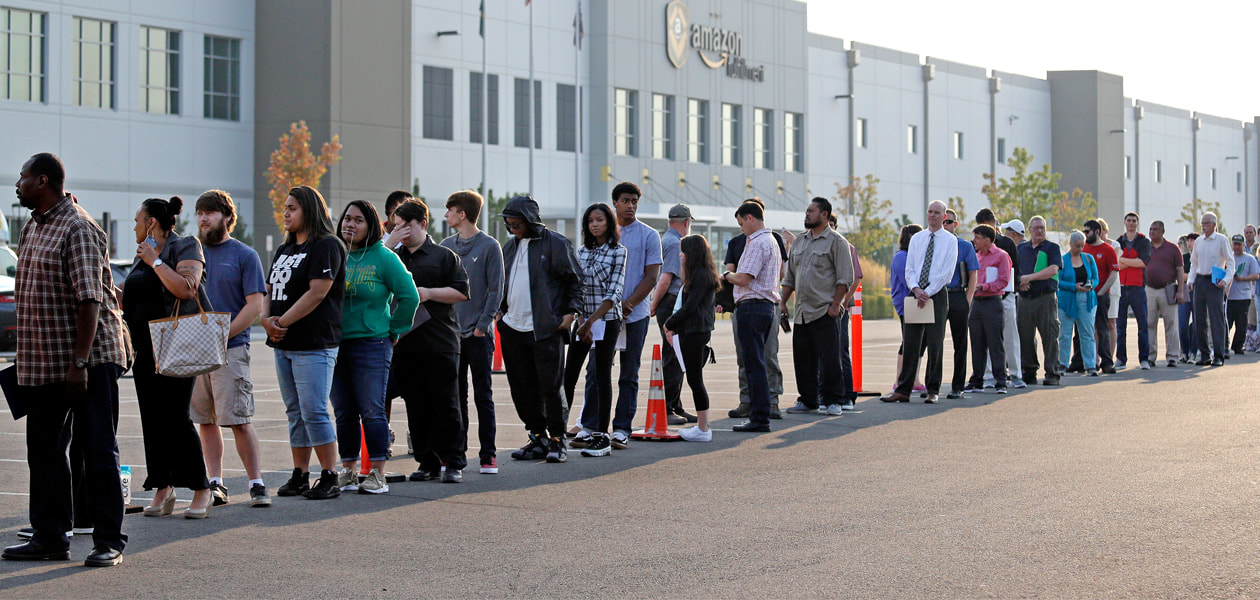



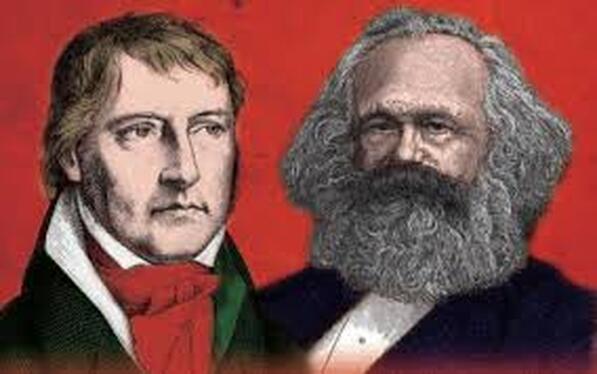
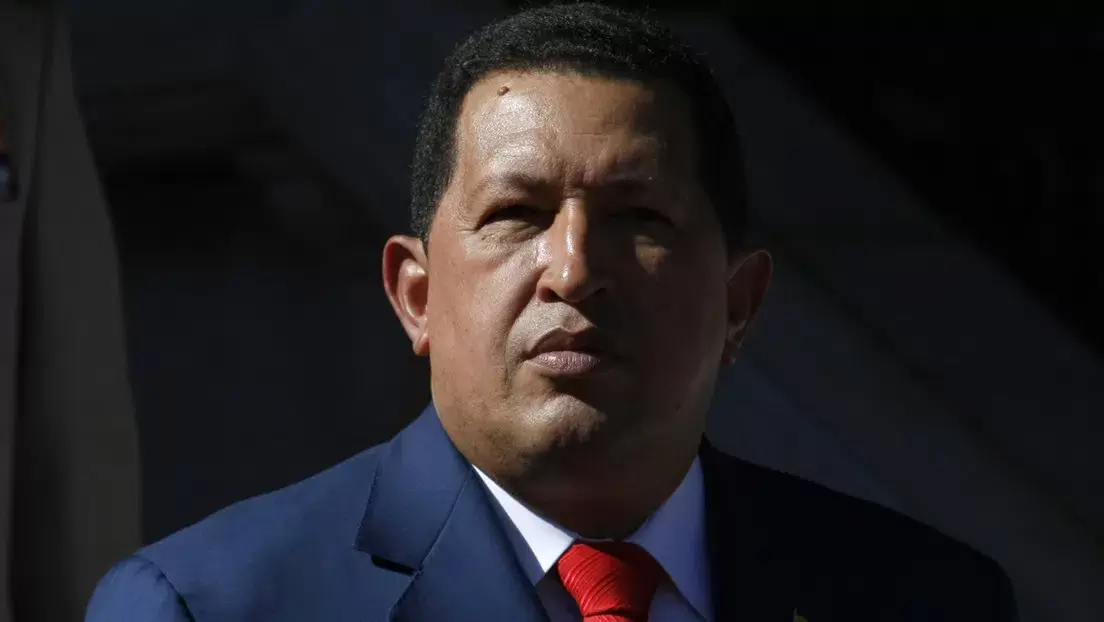
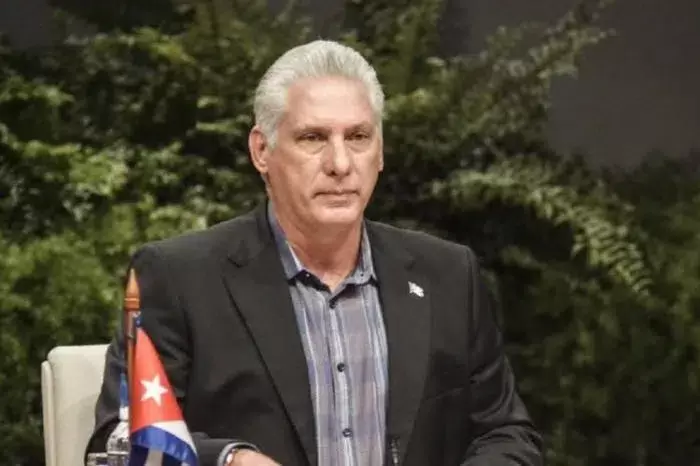

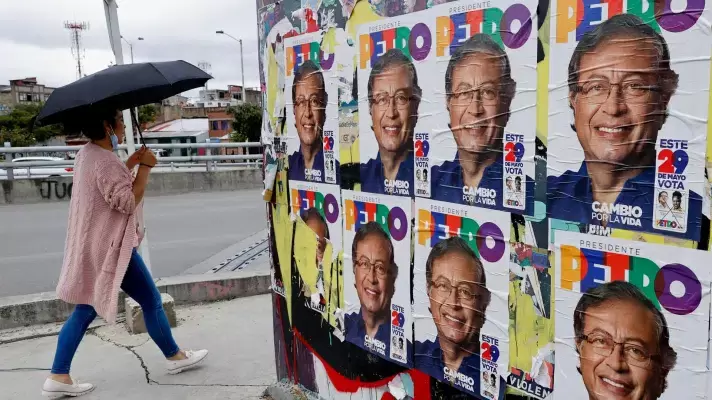
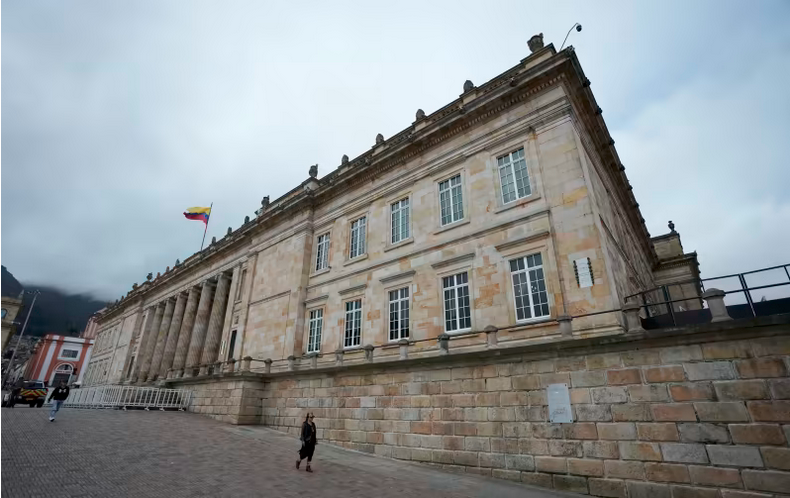

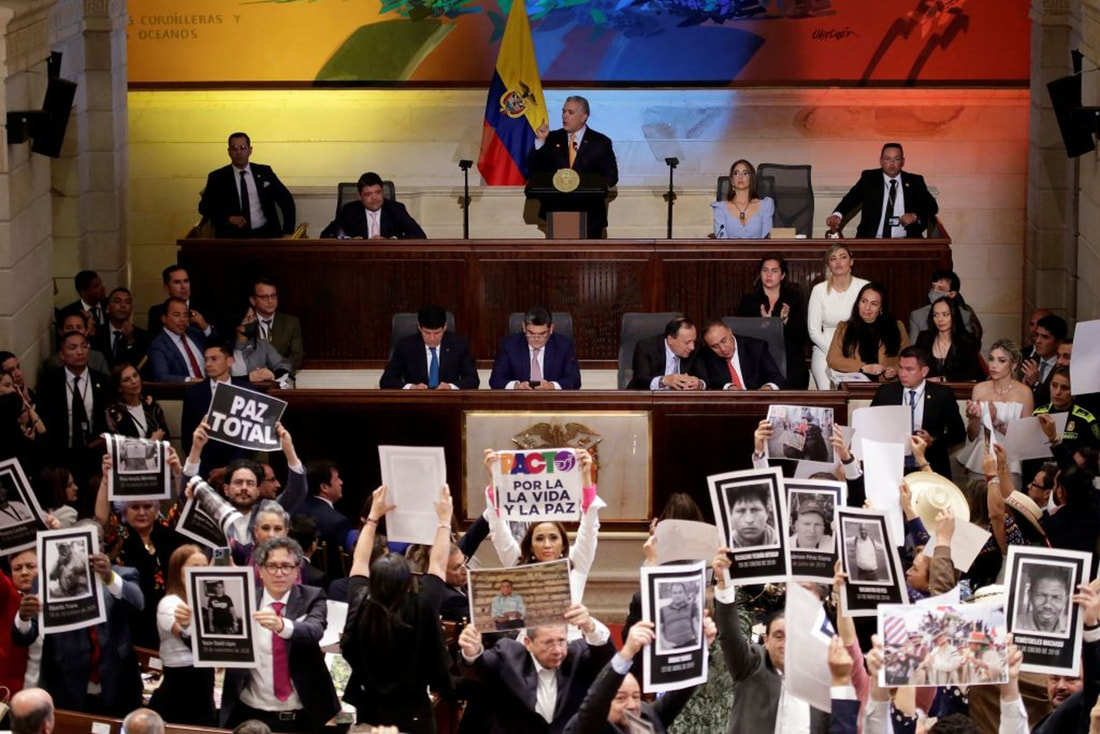
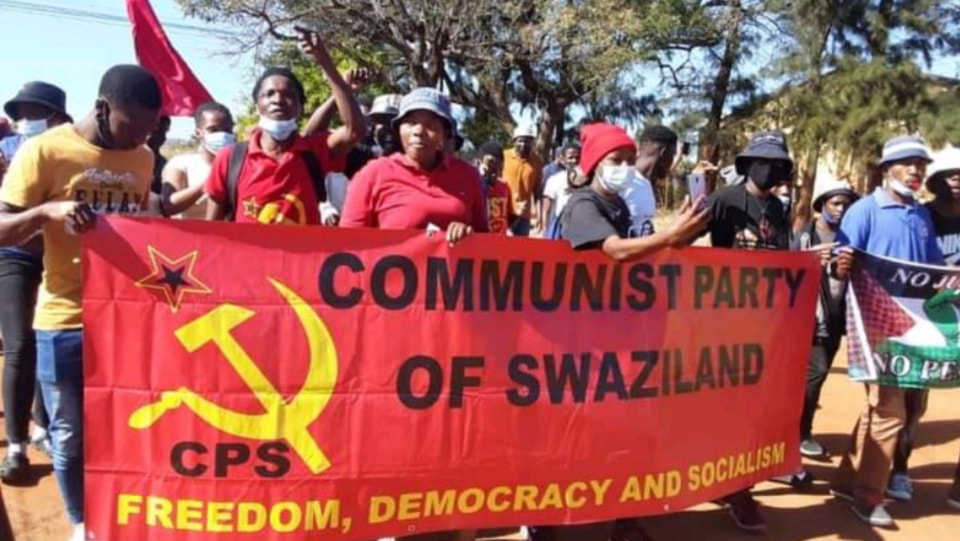
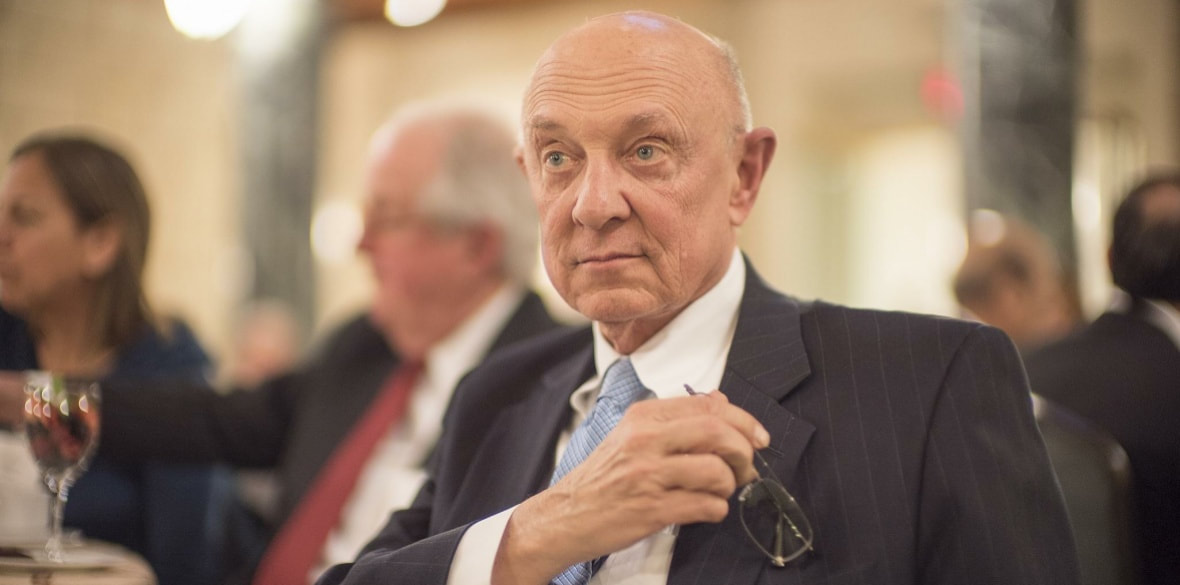


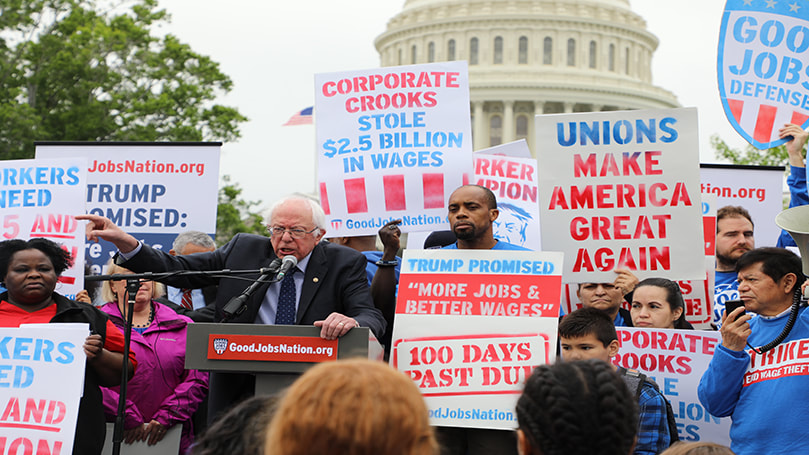

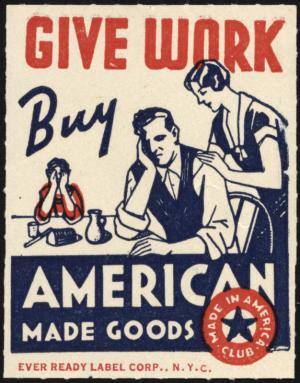
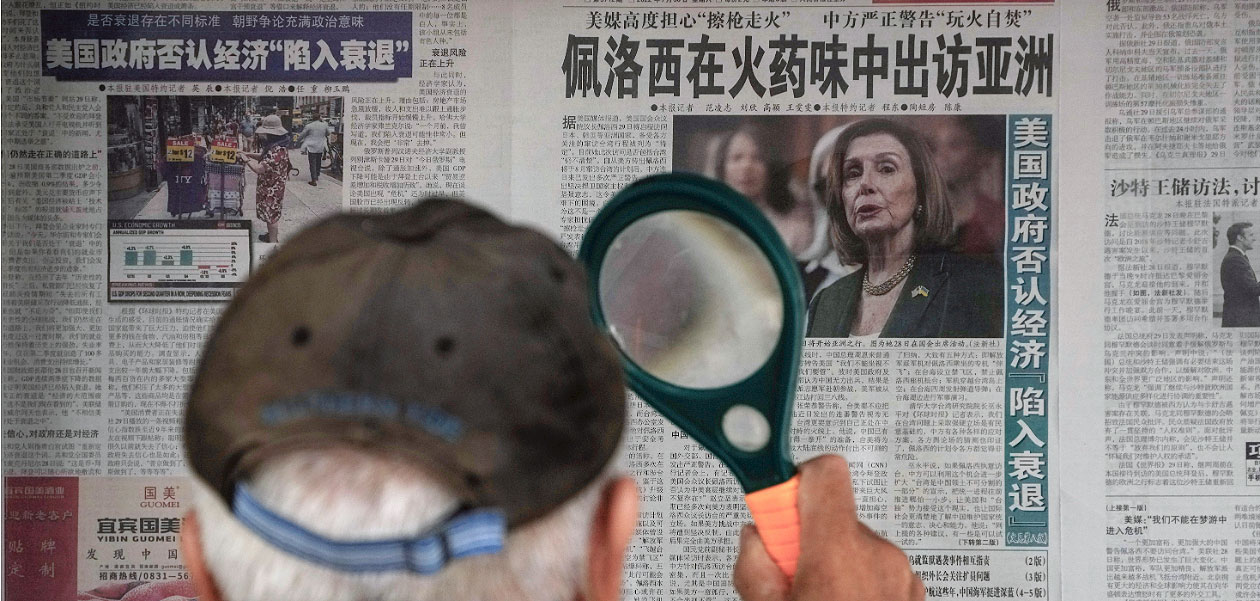
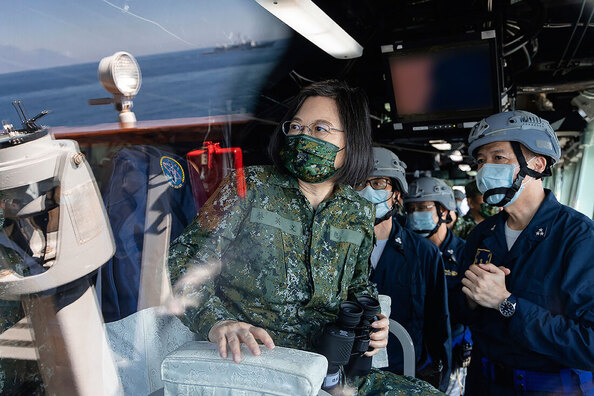
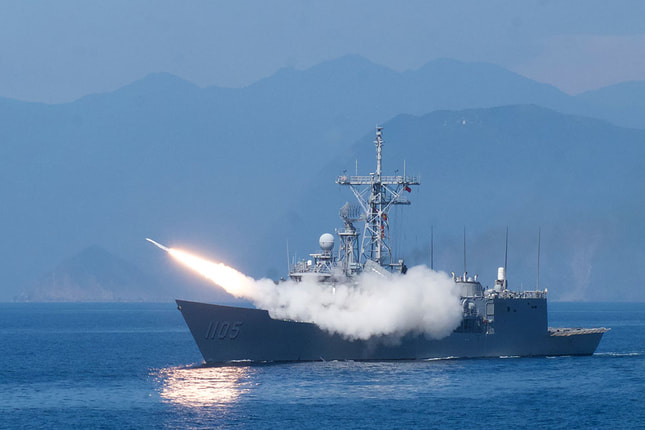
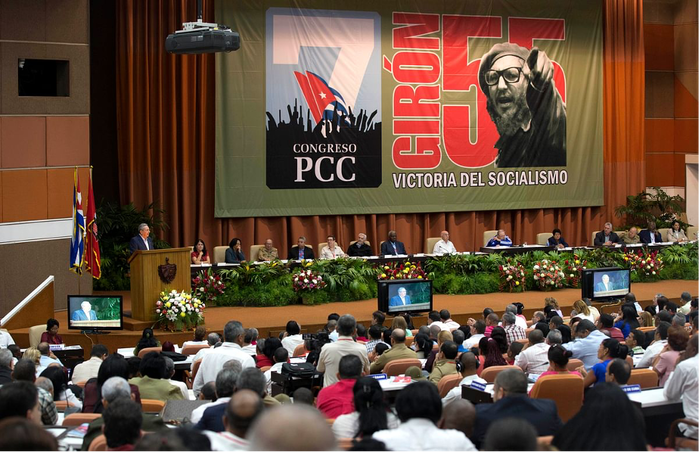
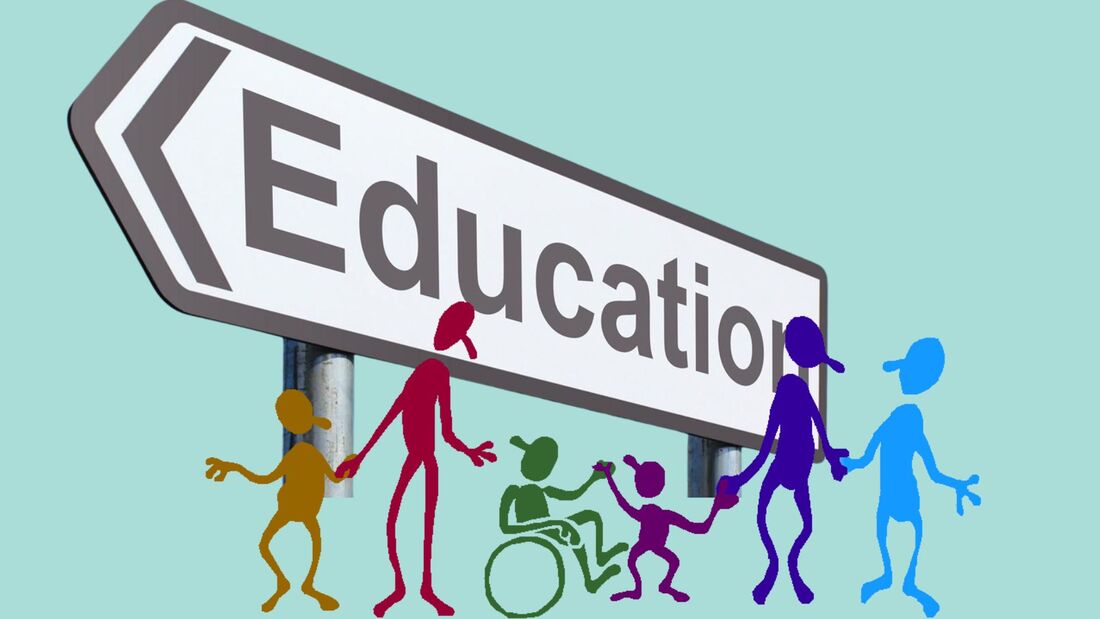
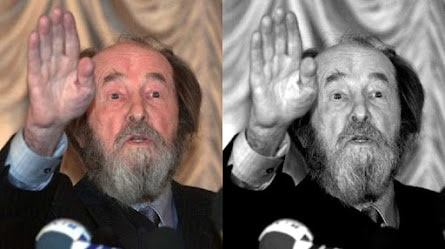
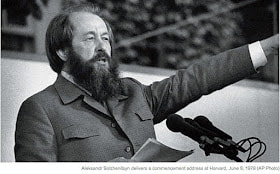


 RSS Feed
RSS Feed